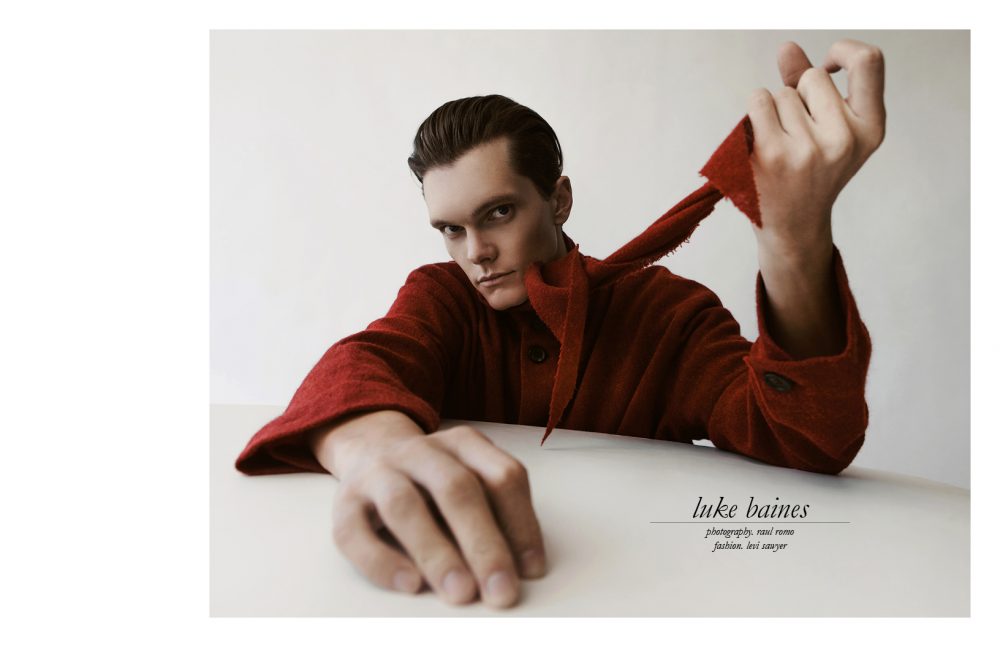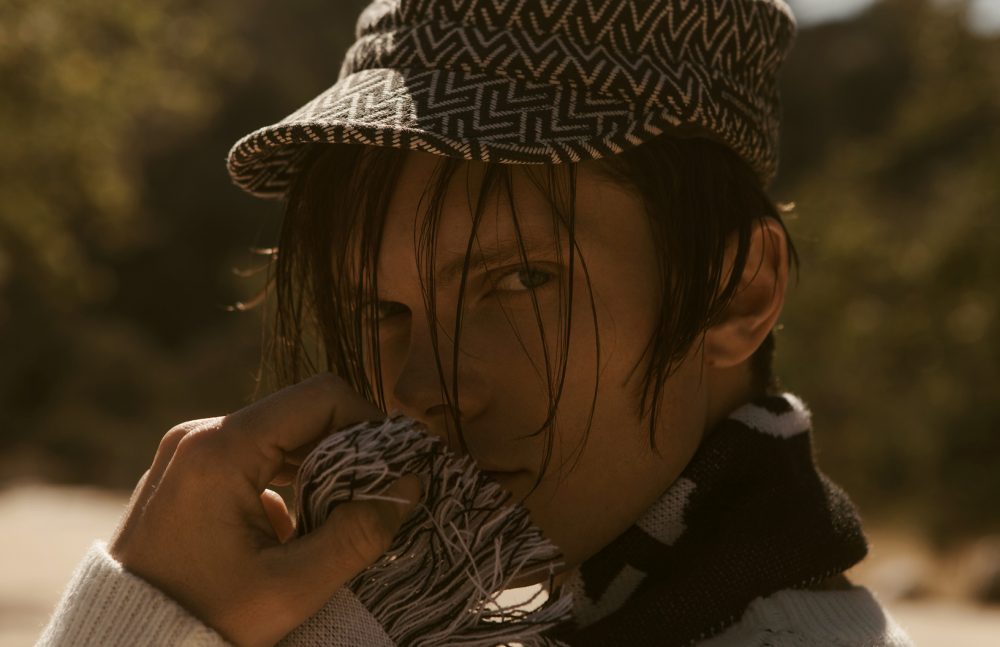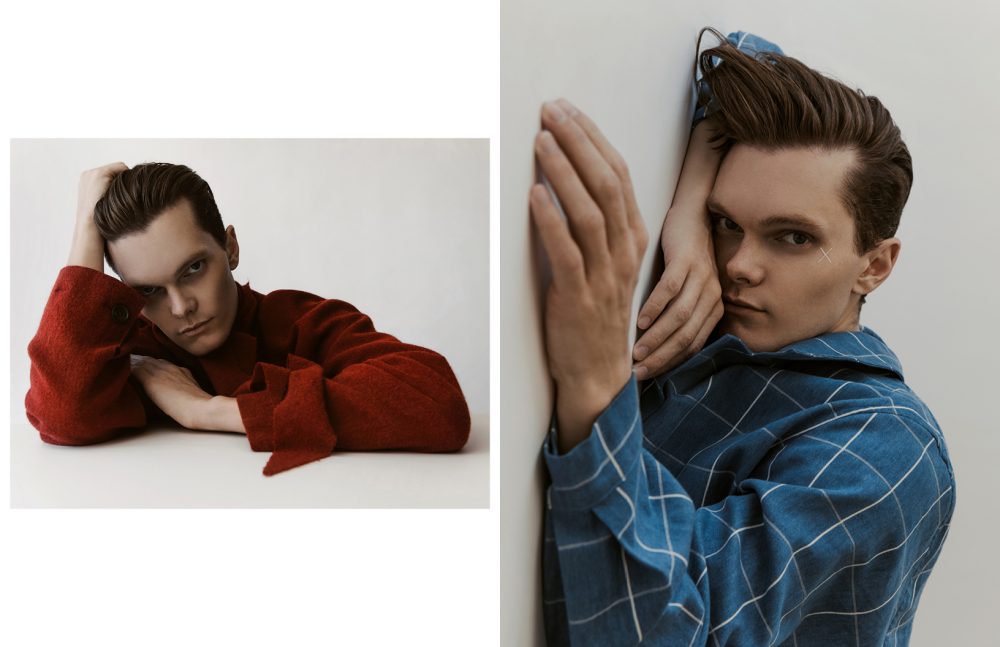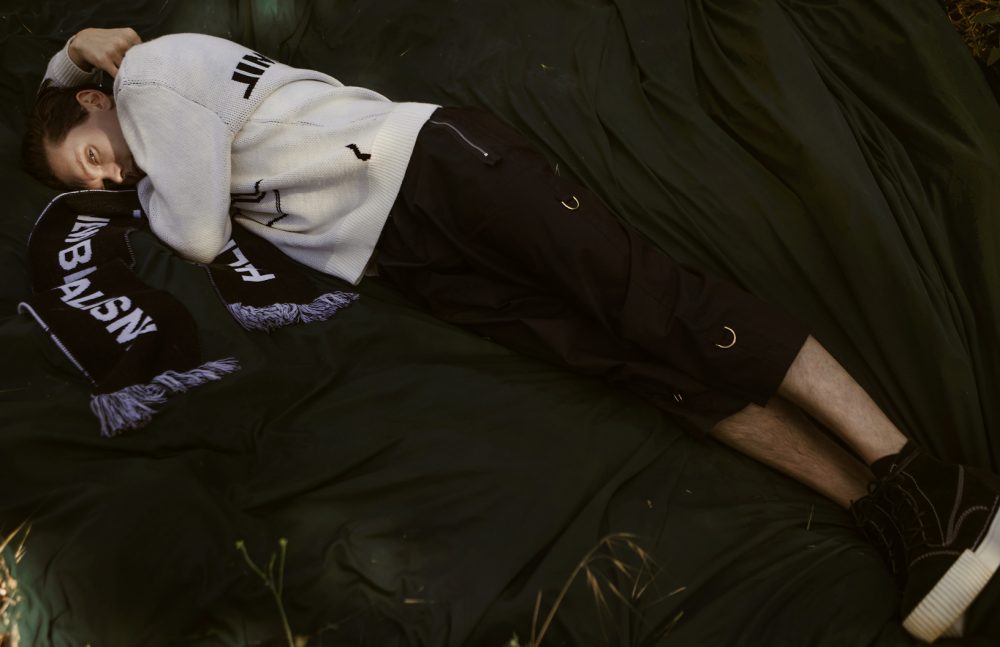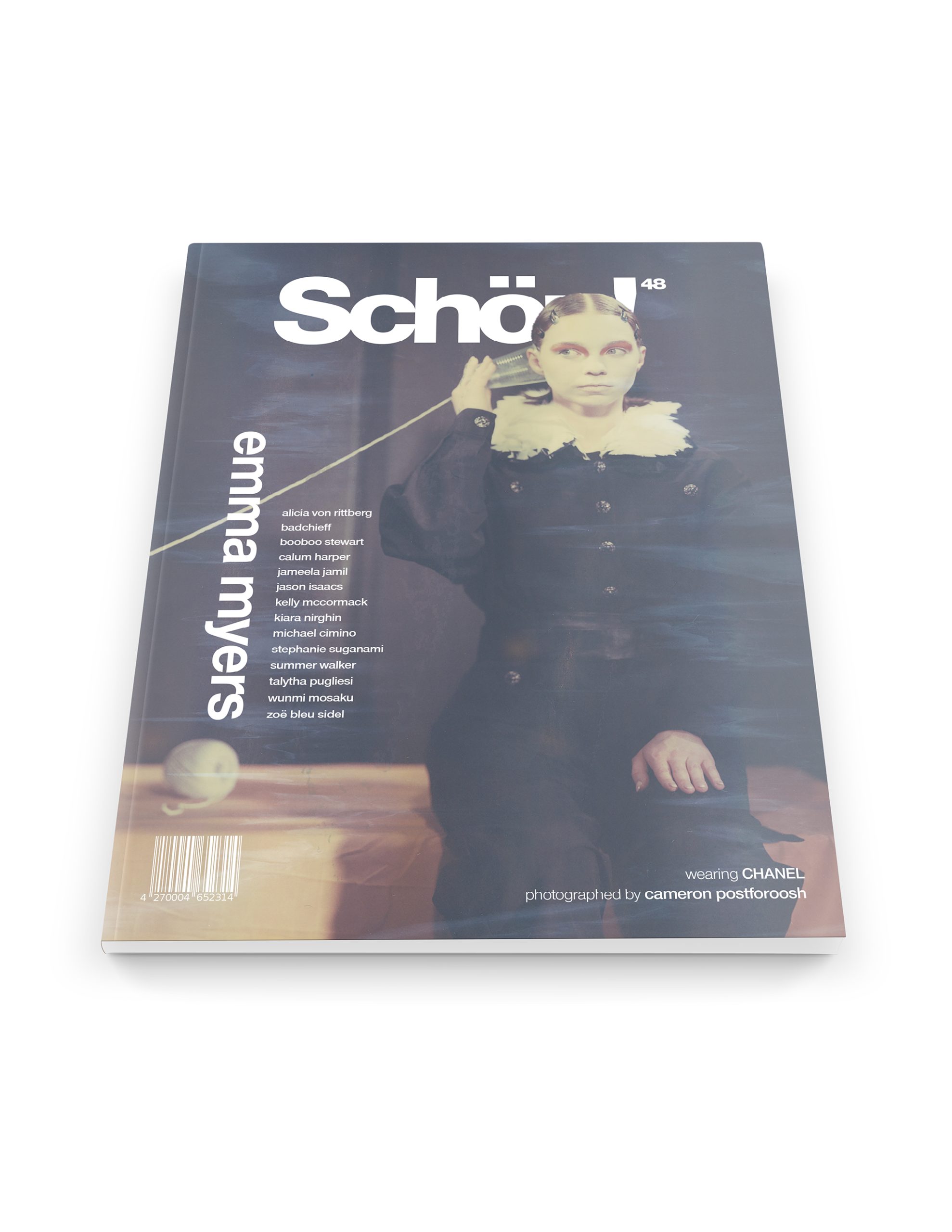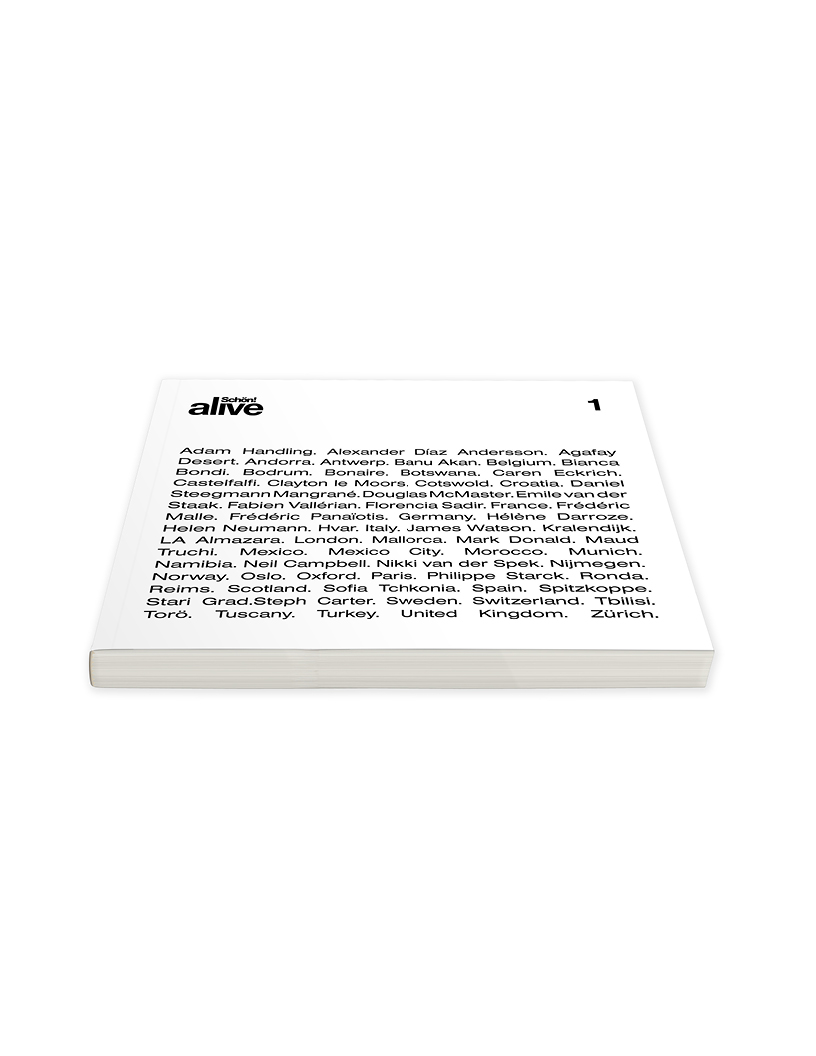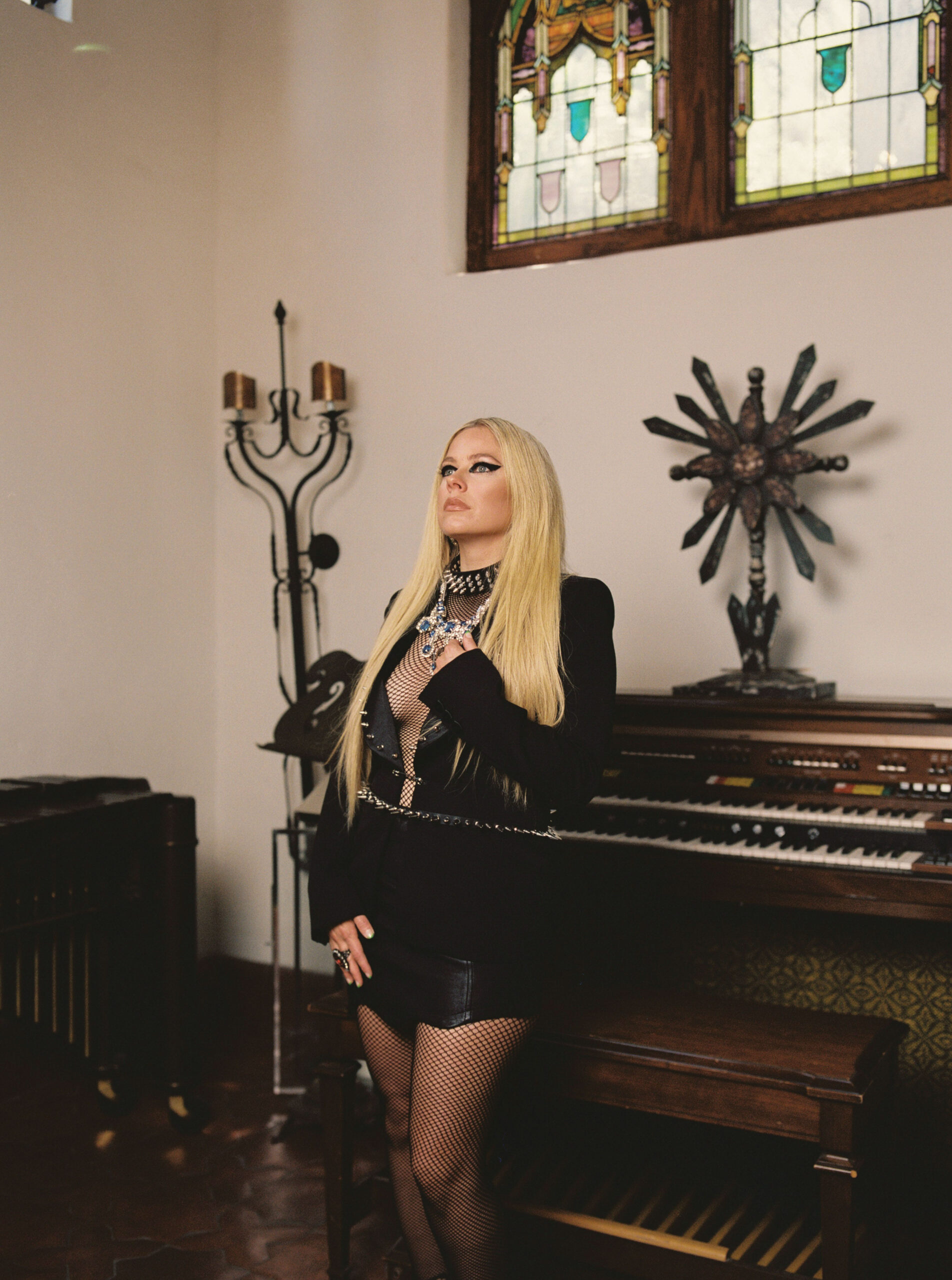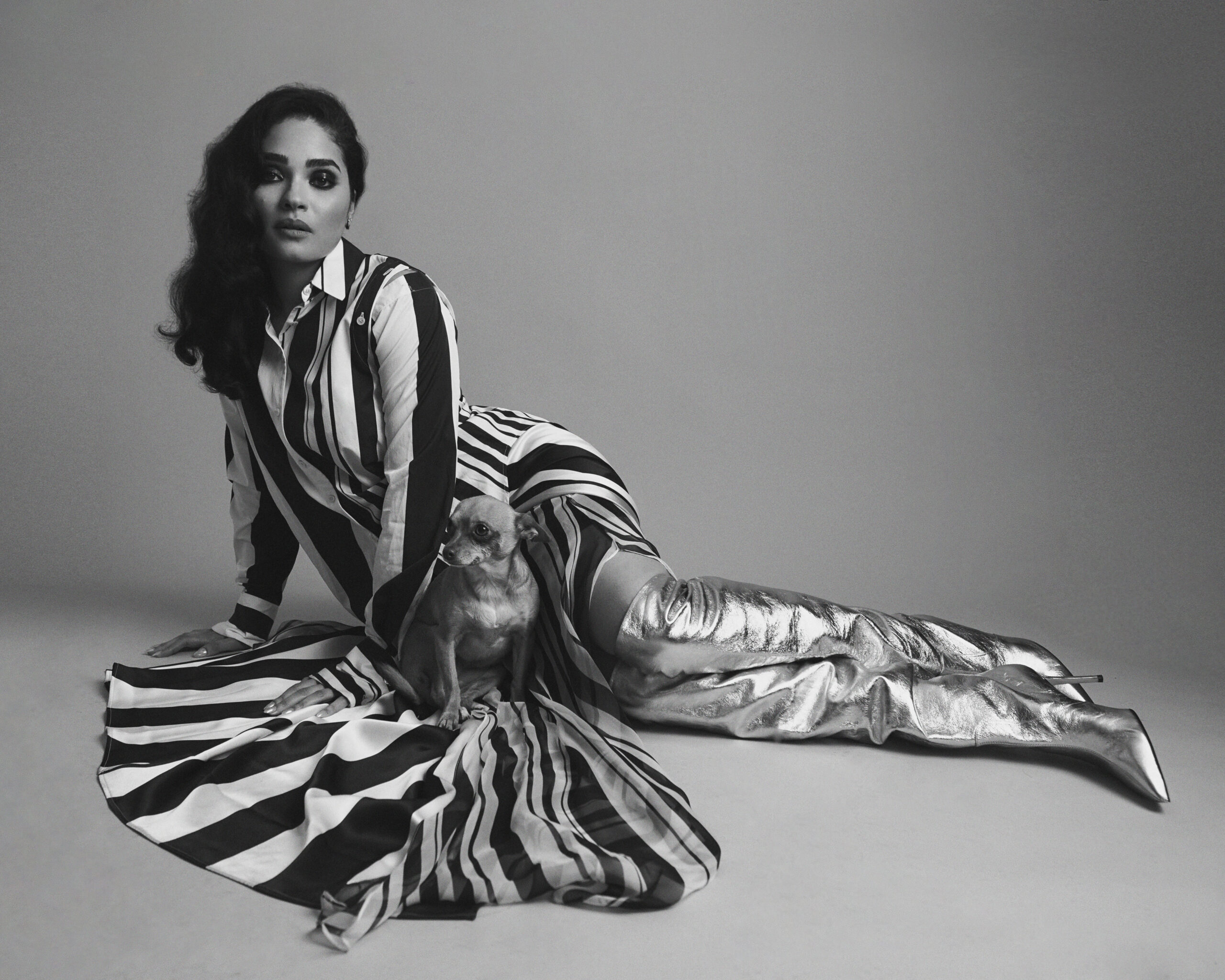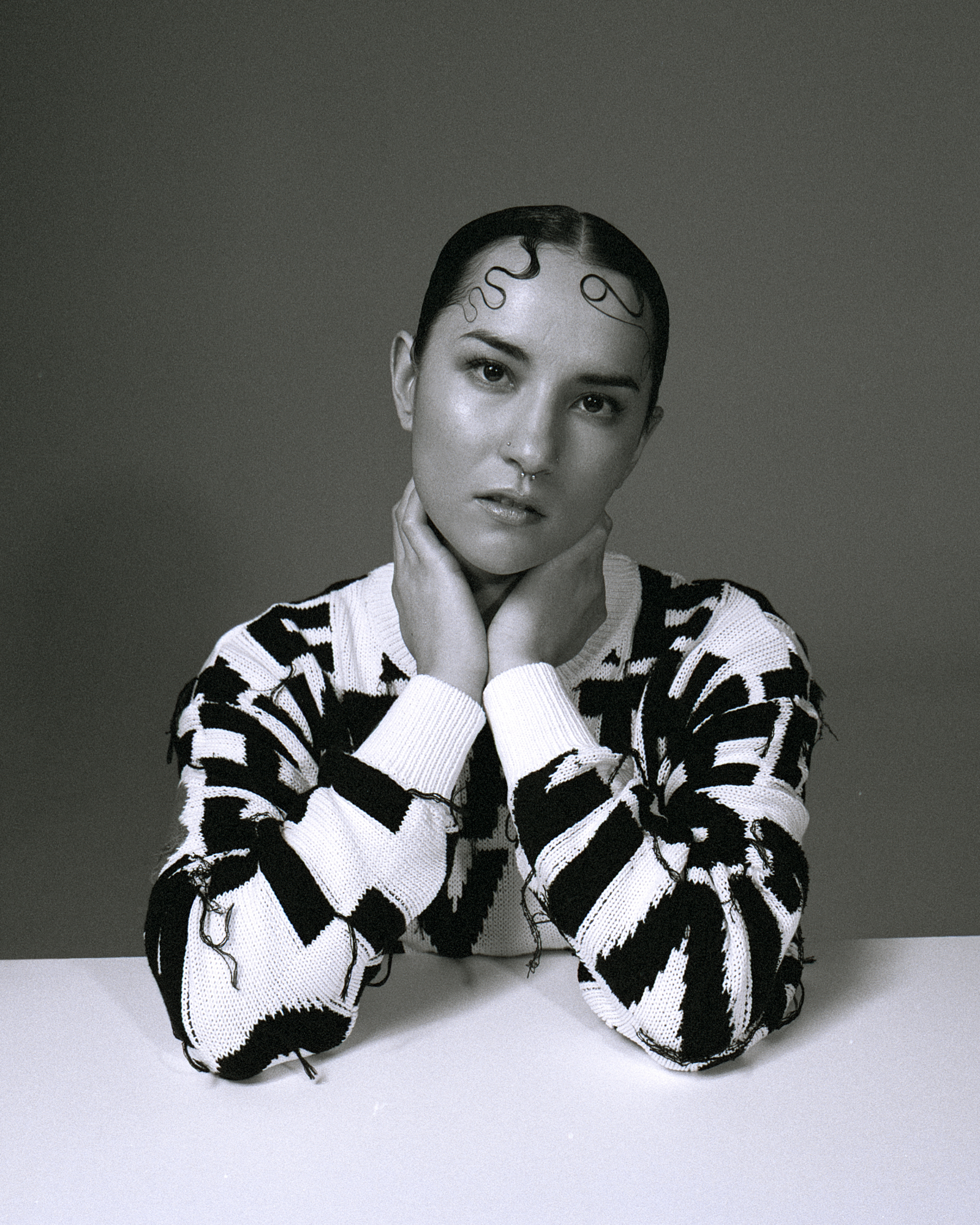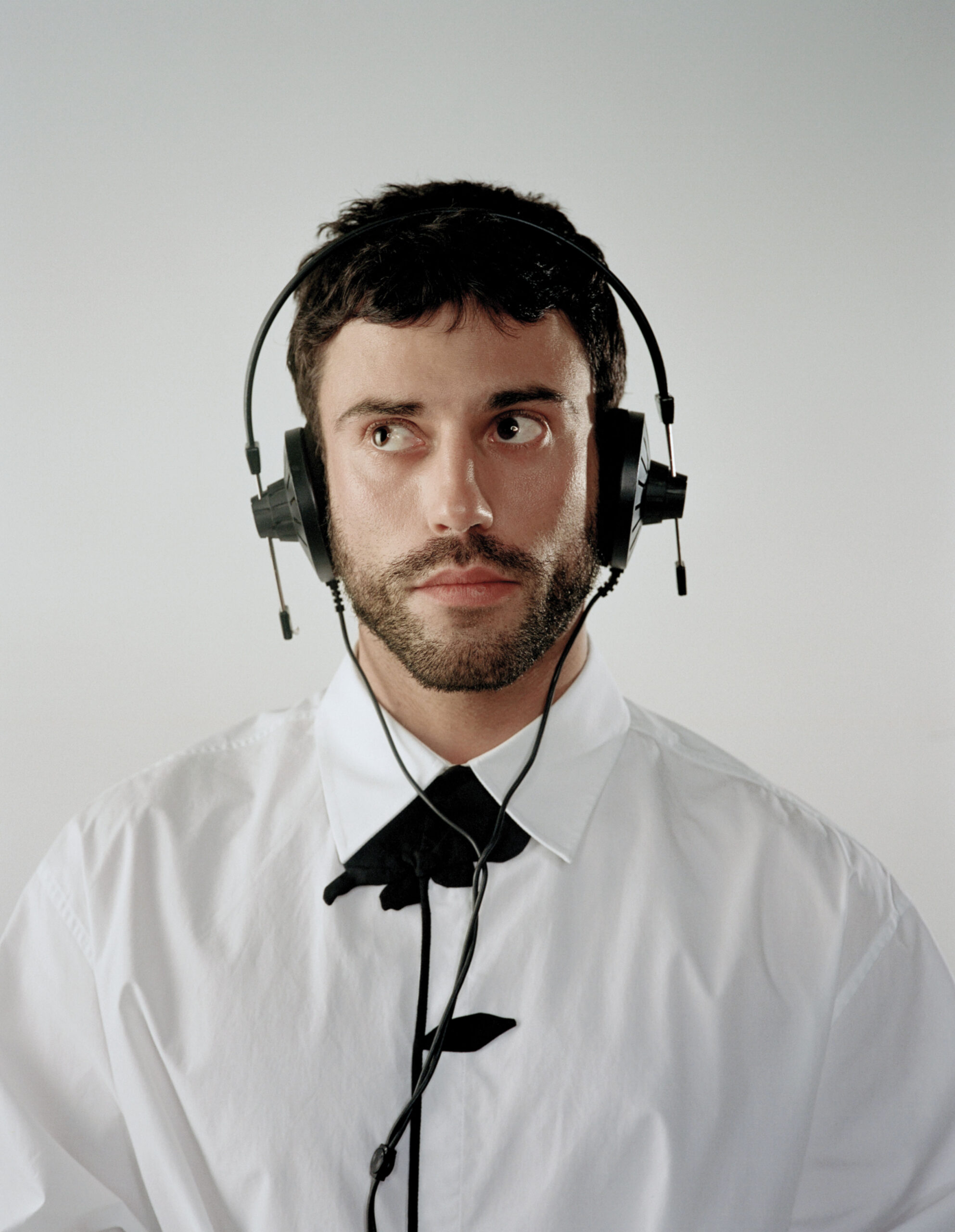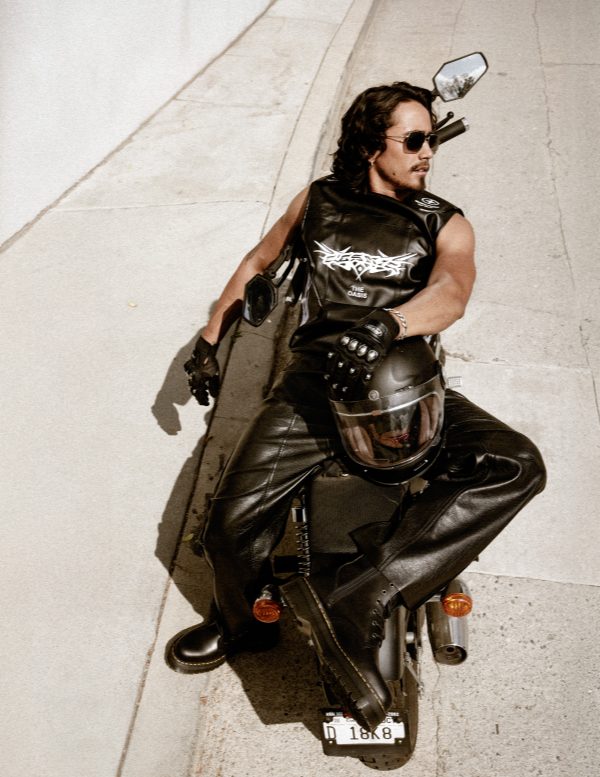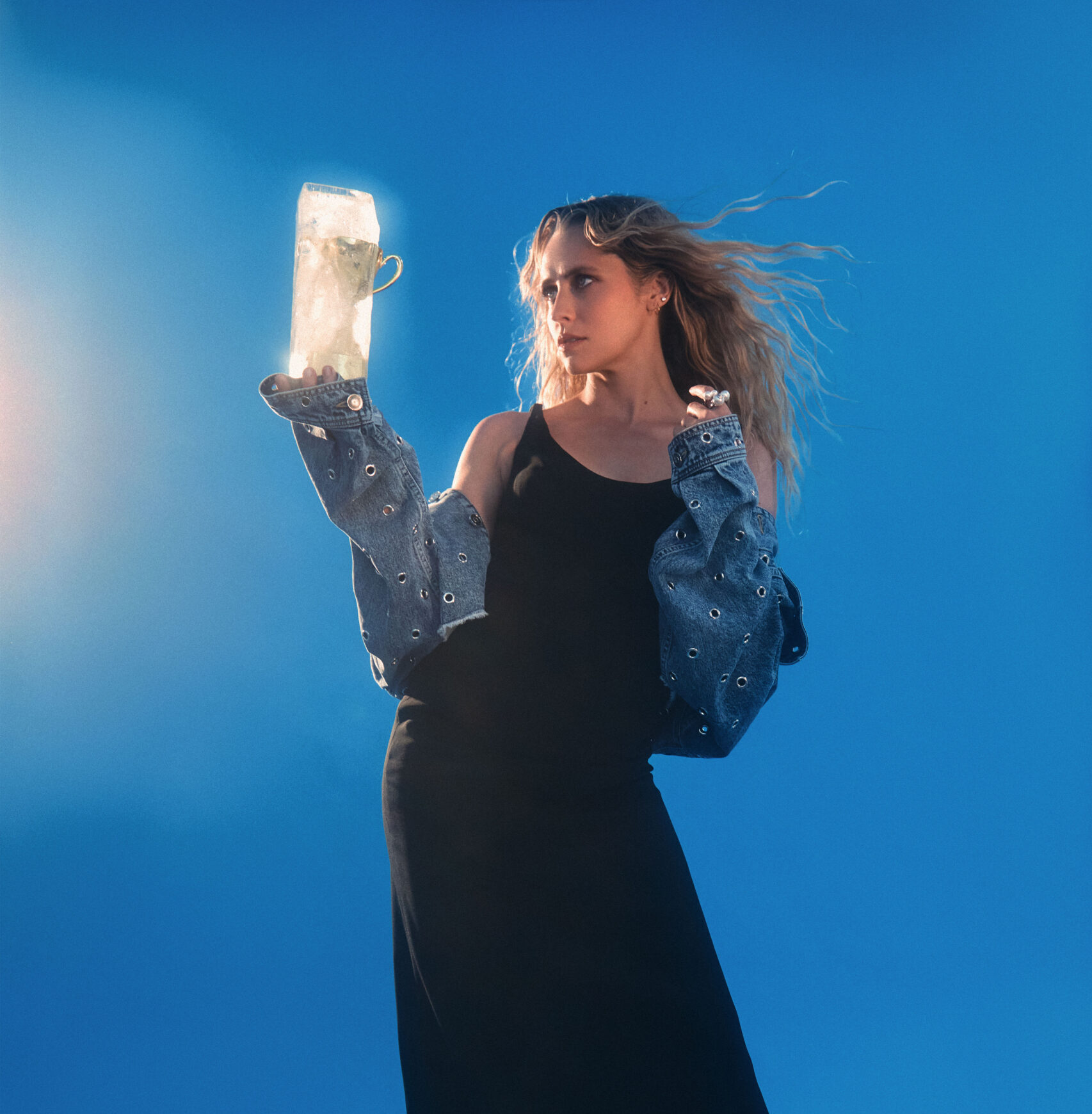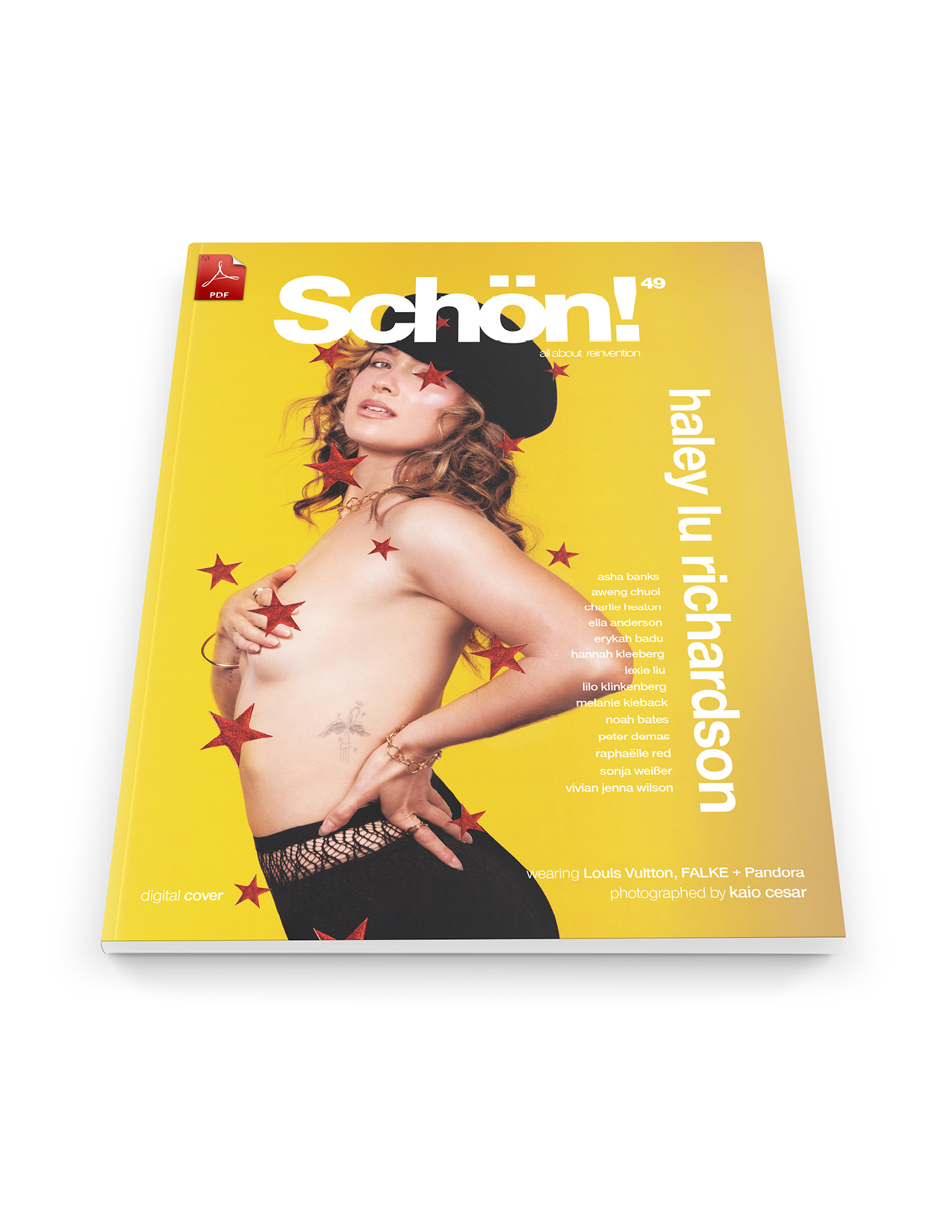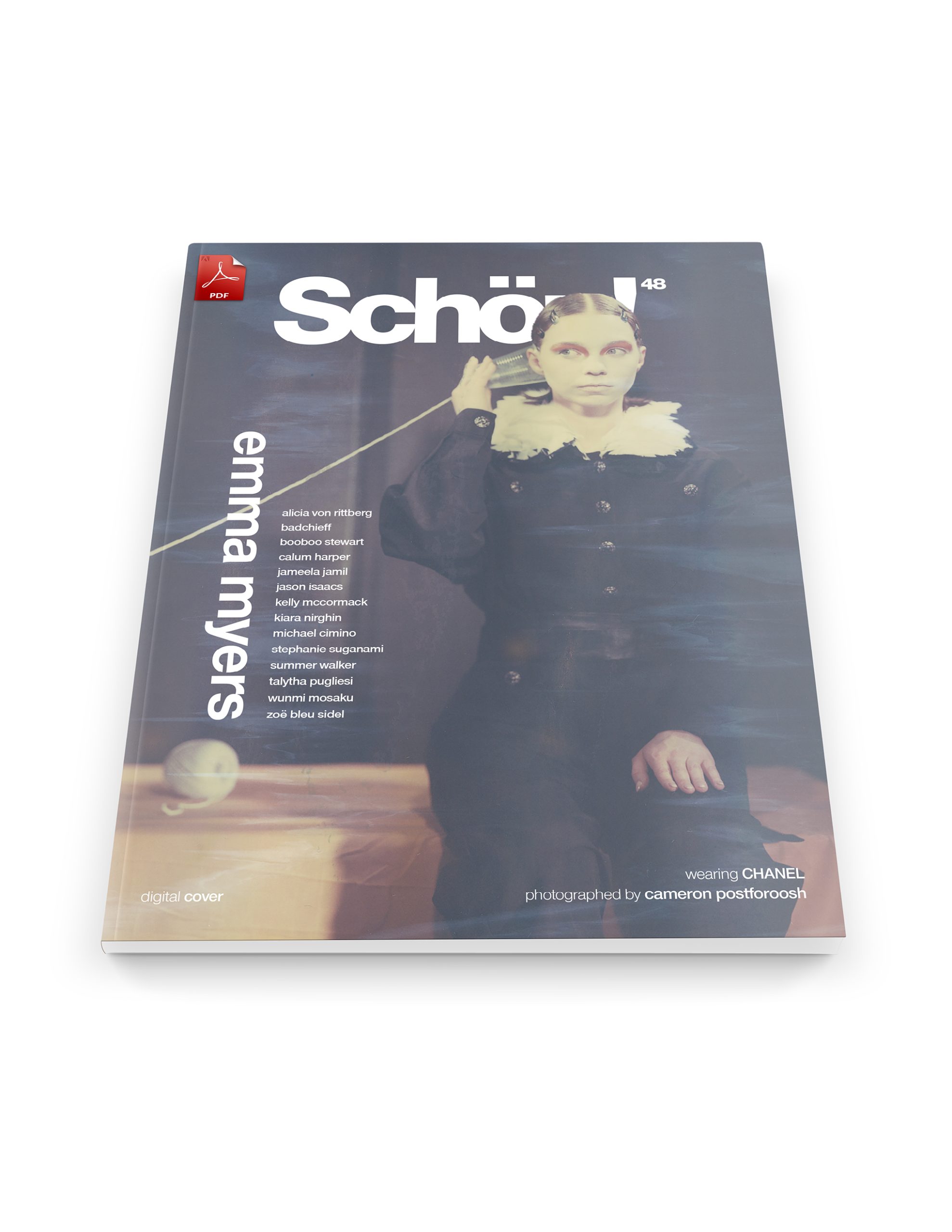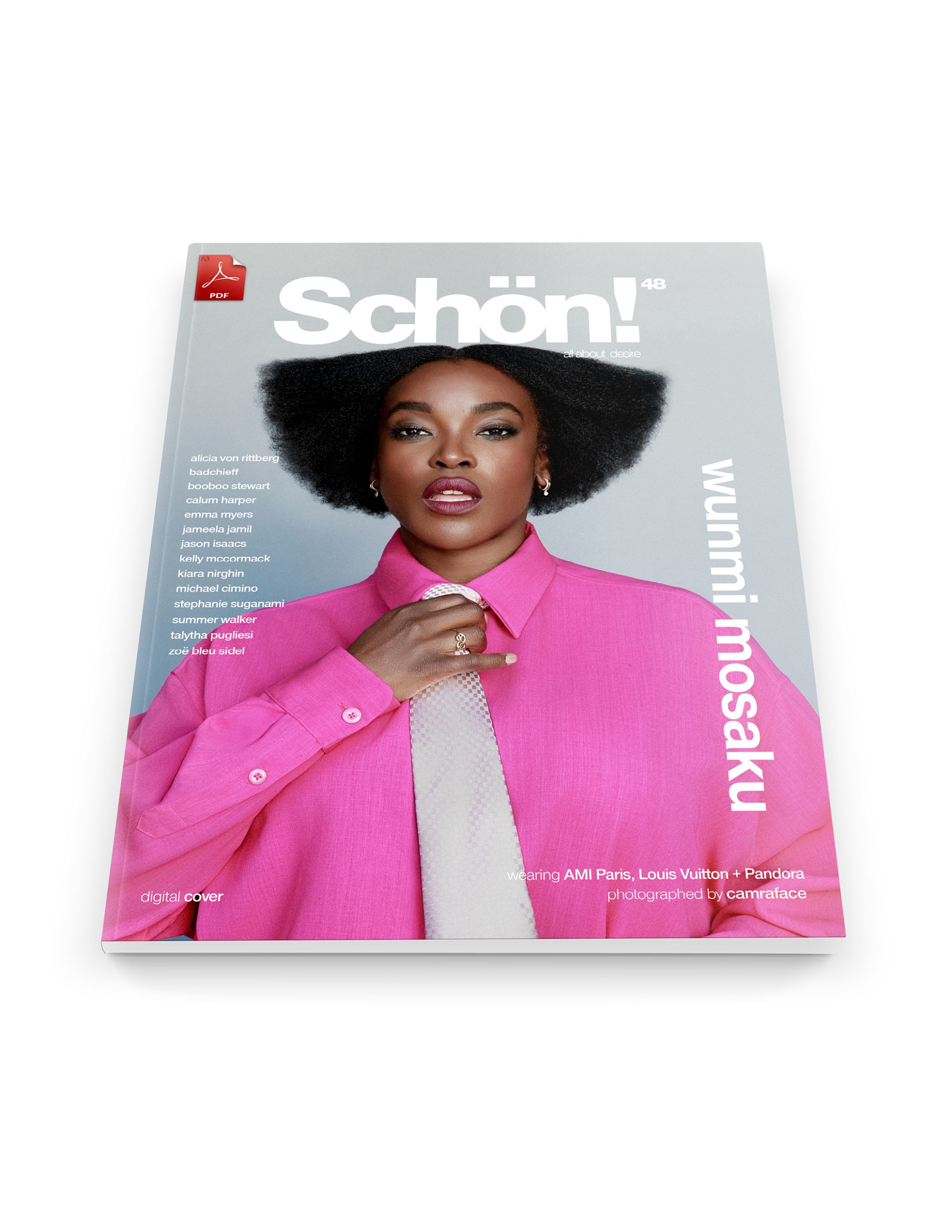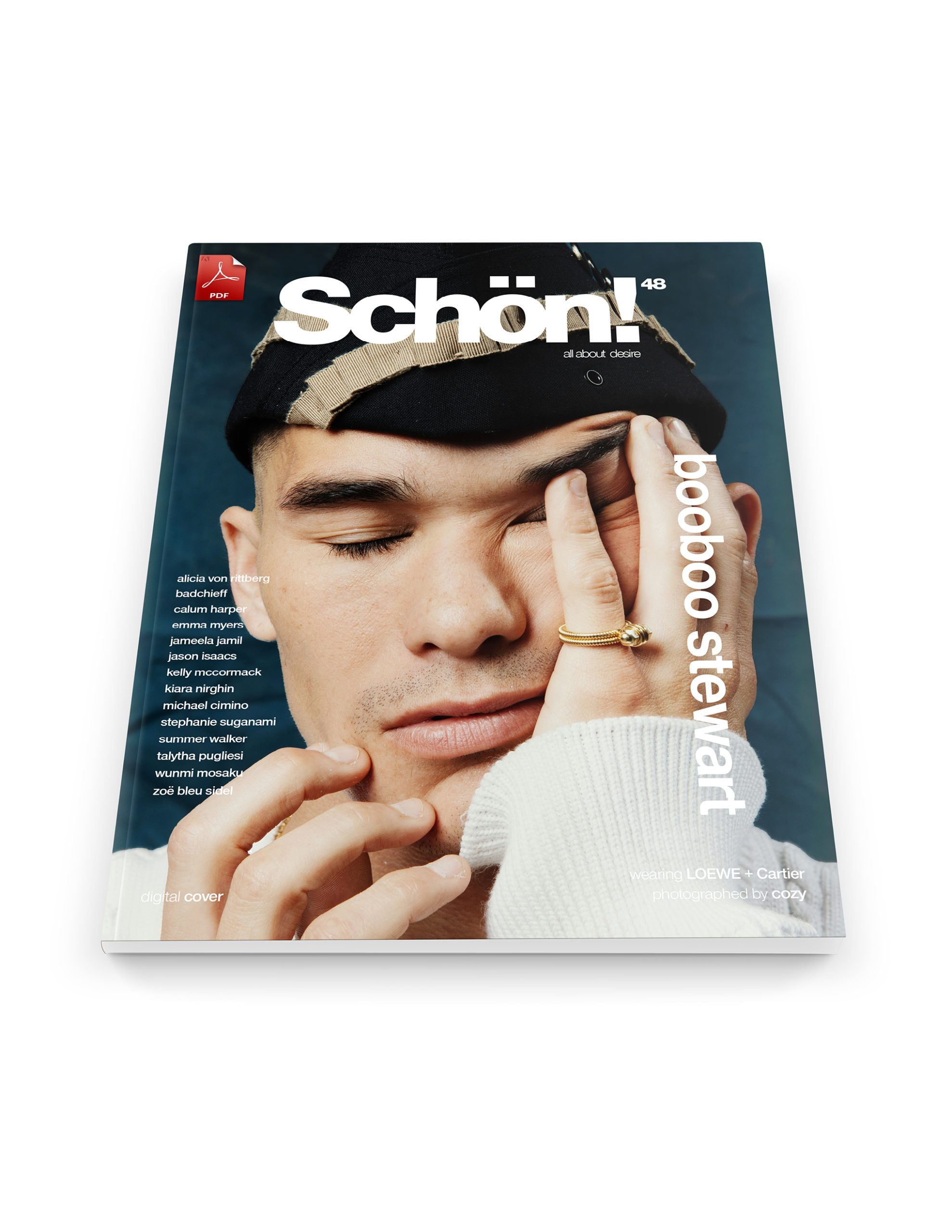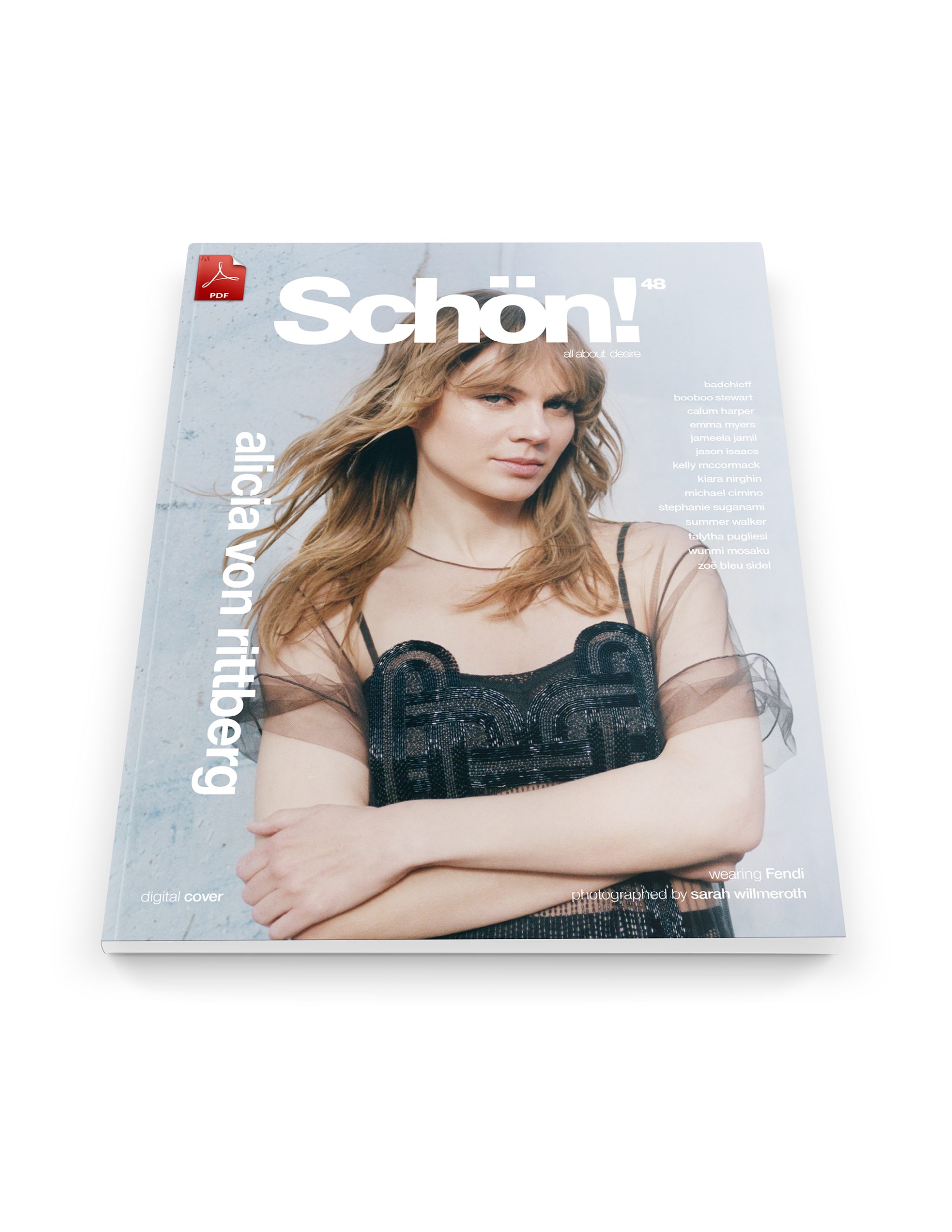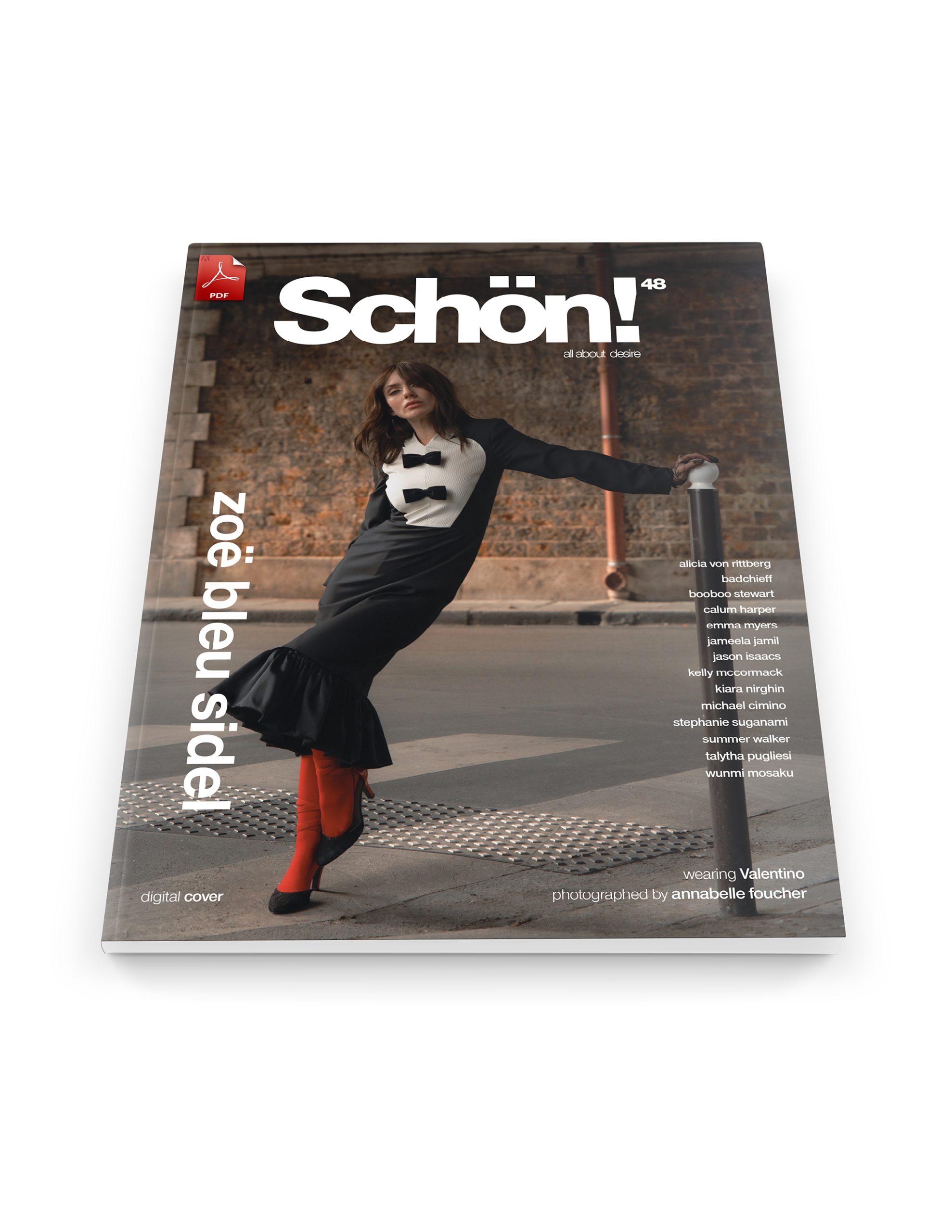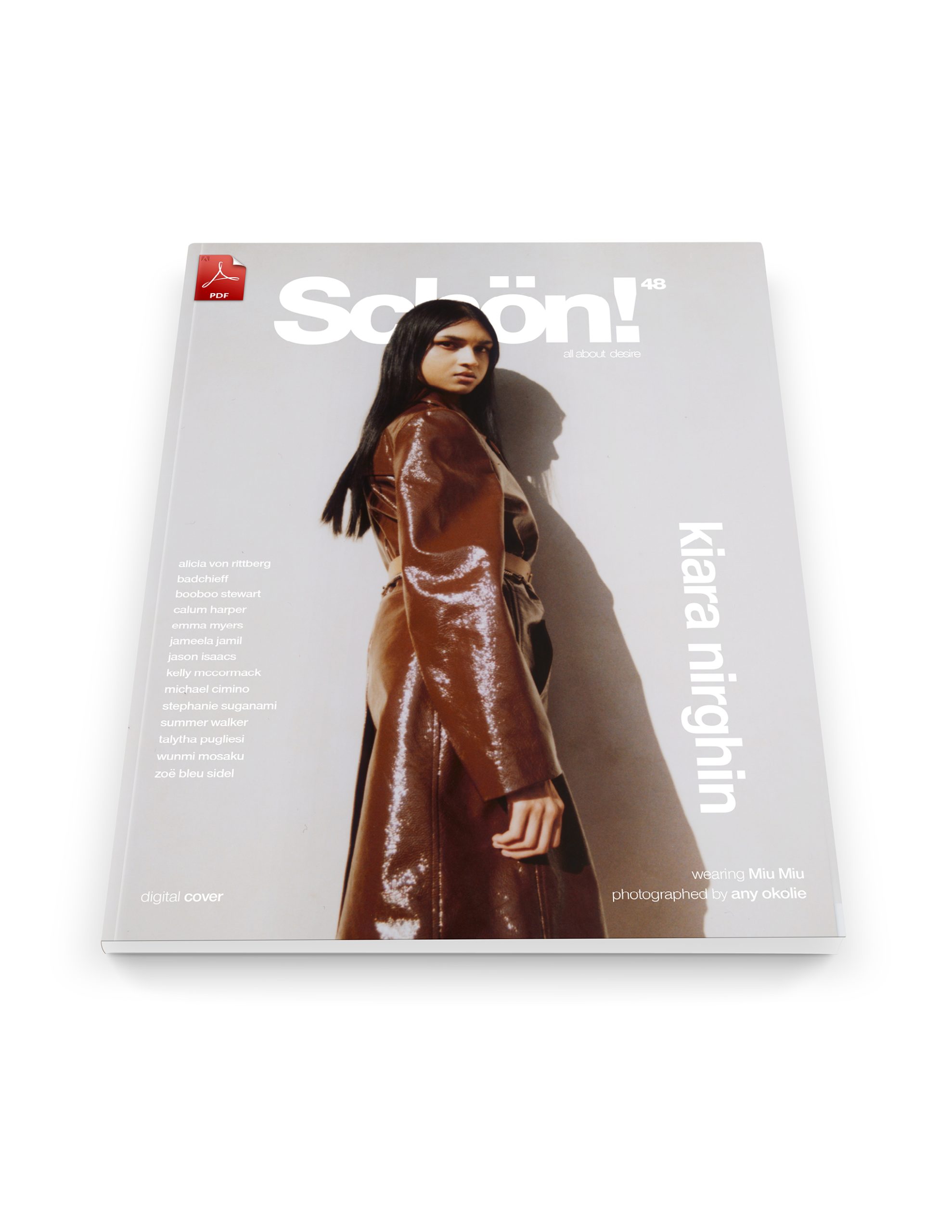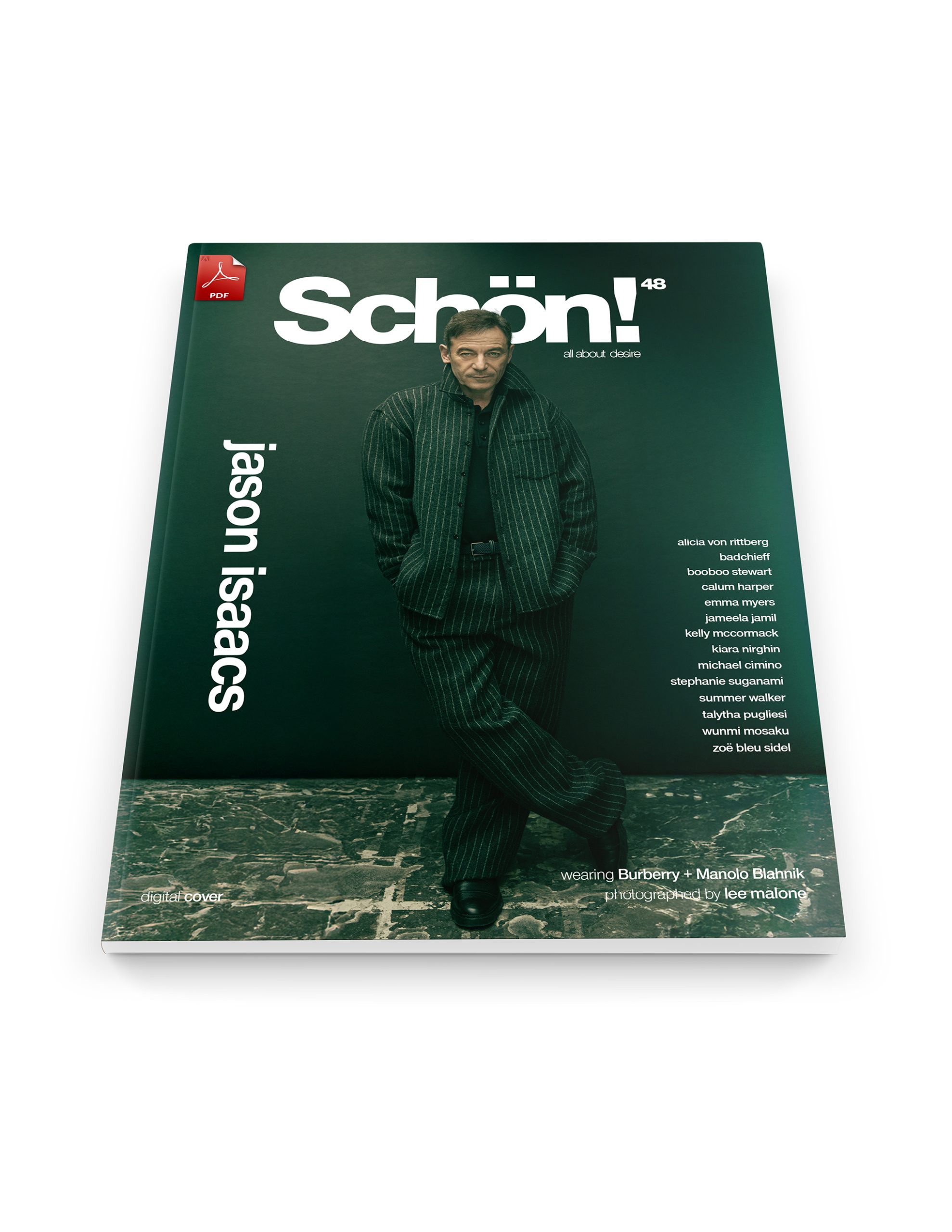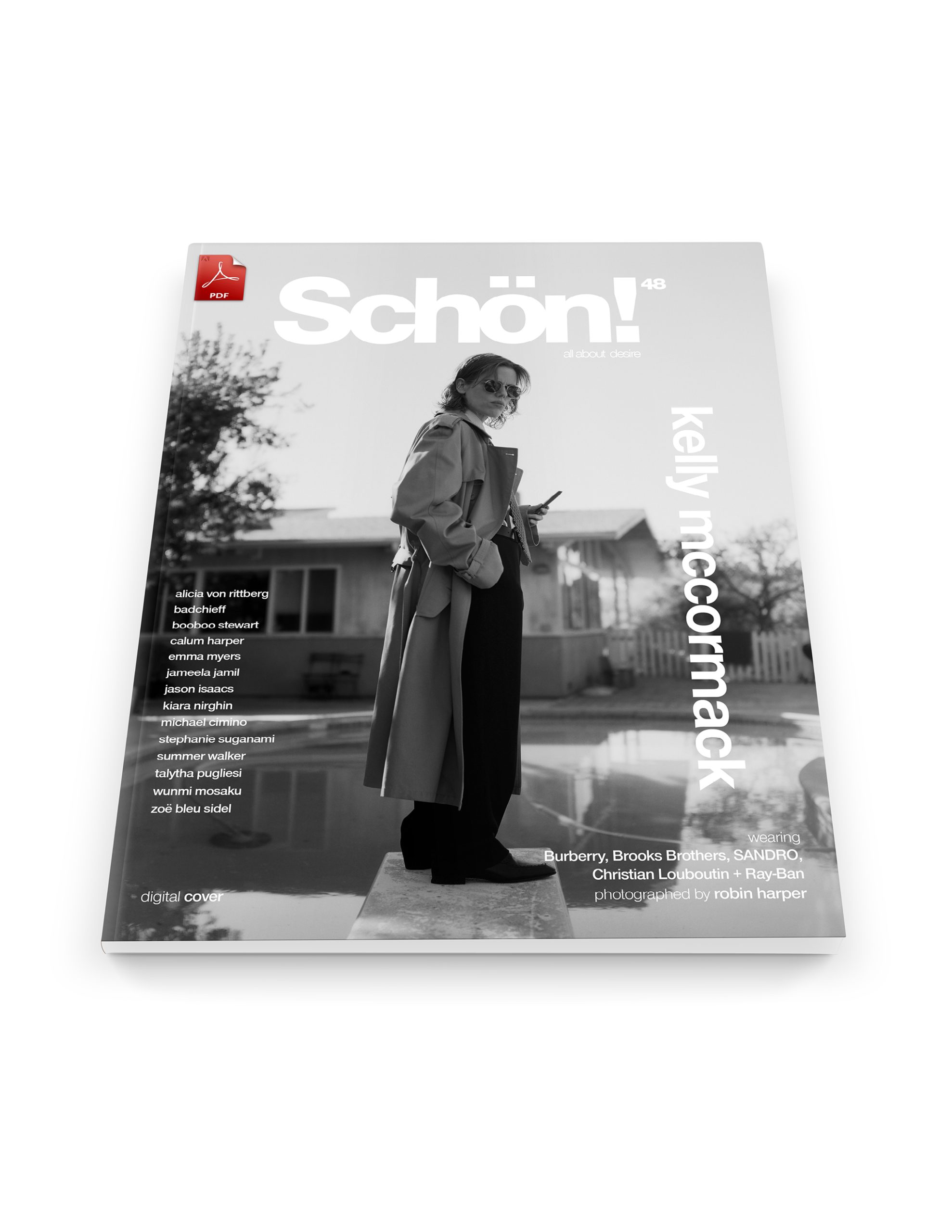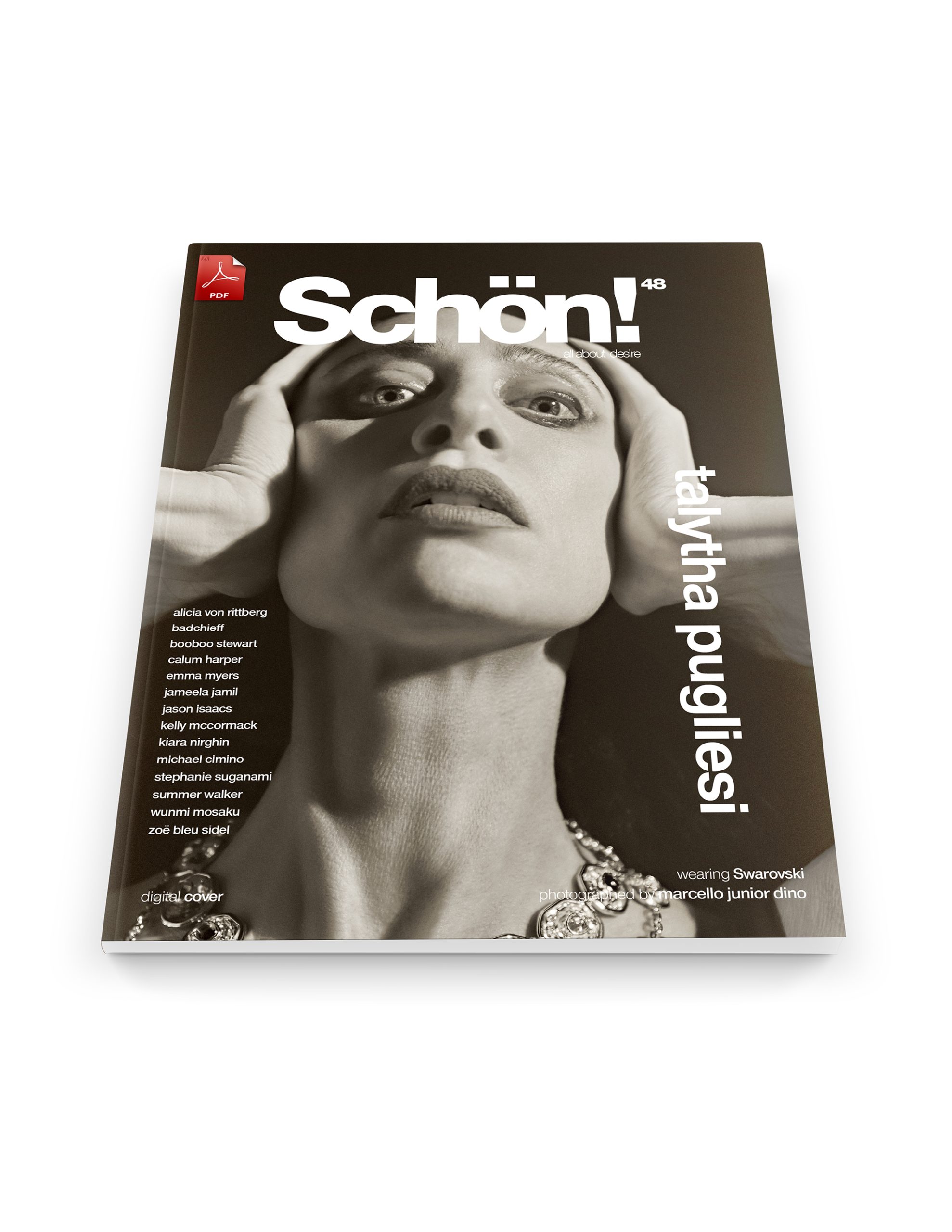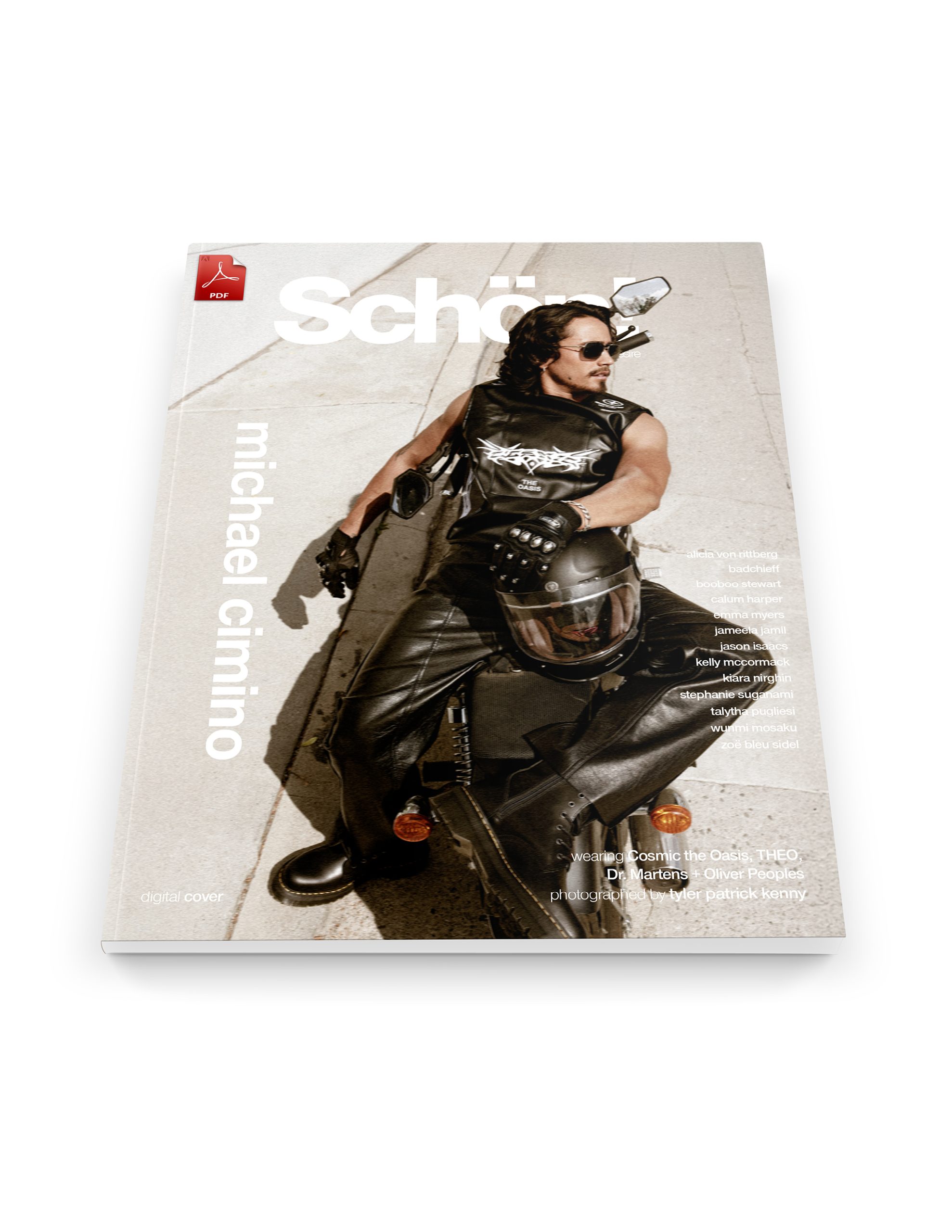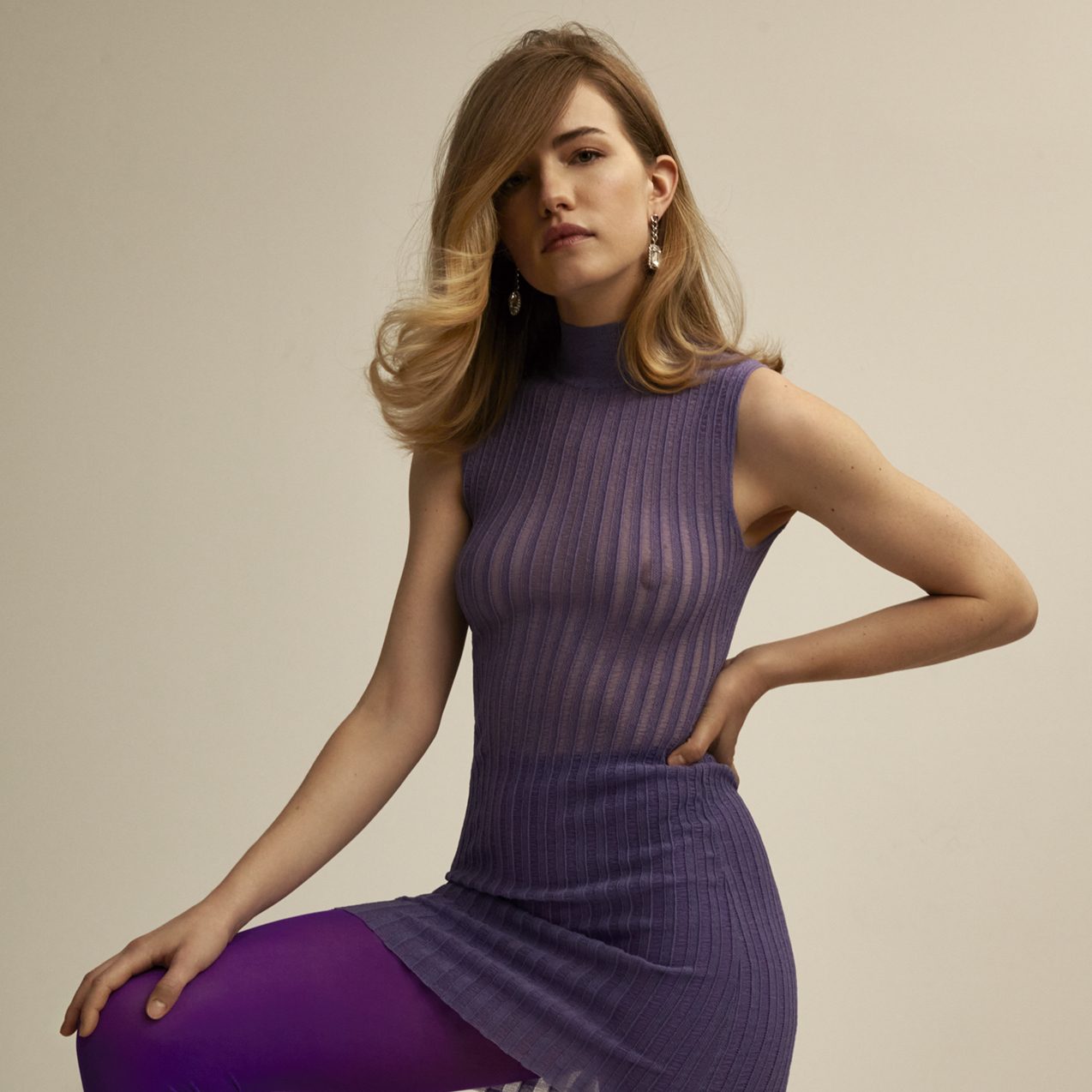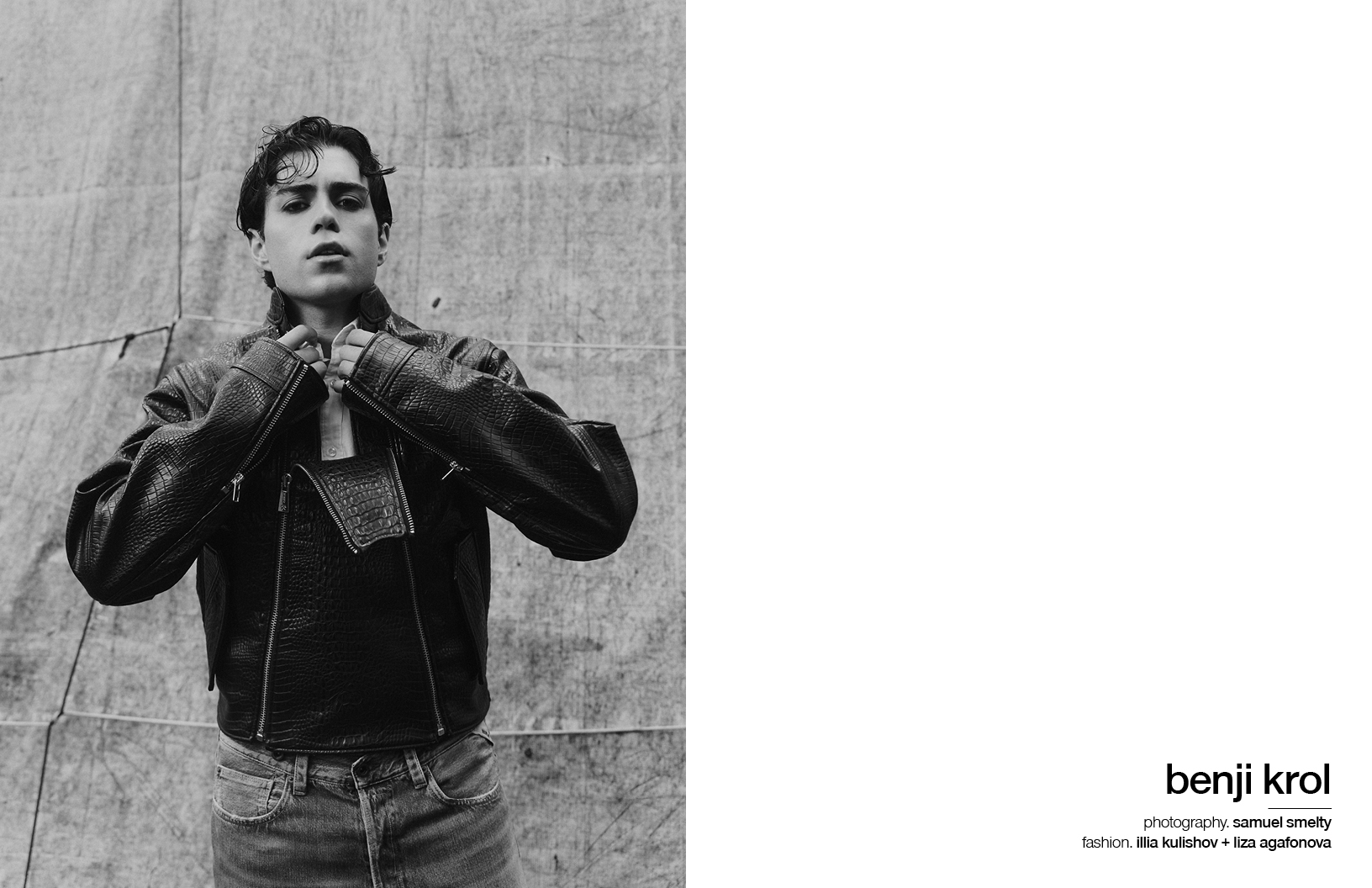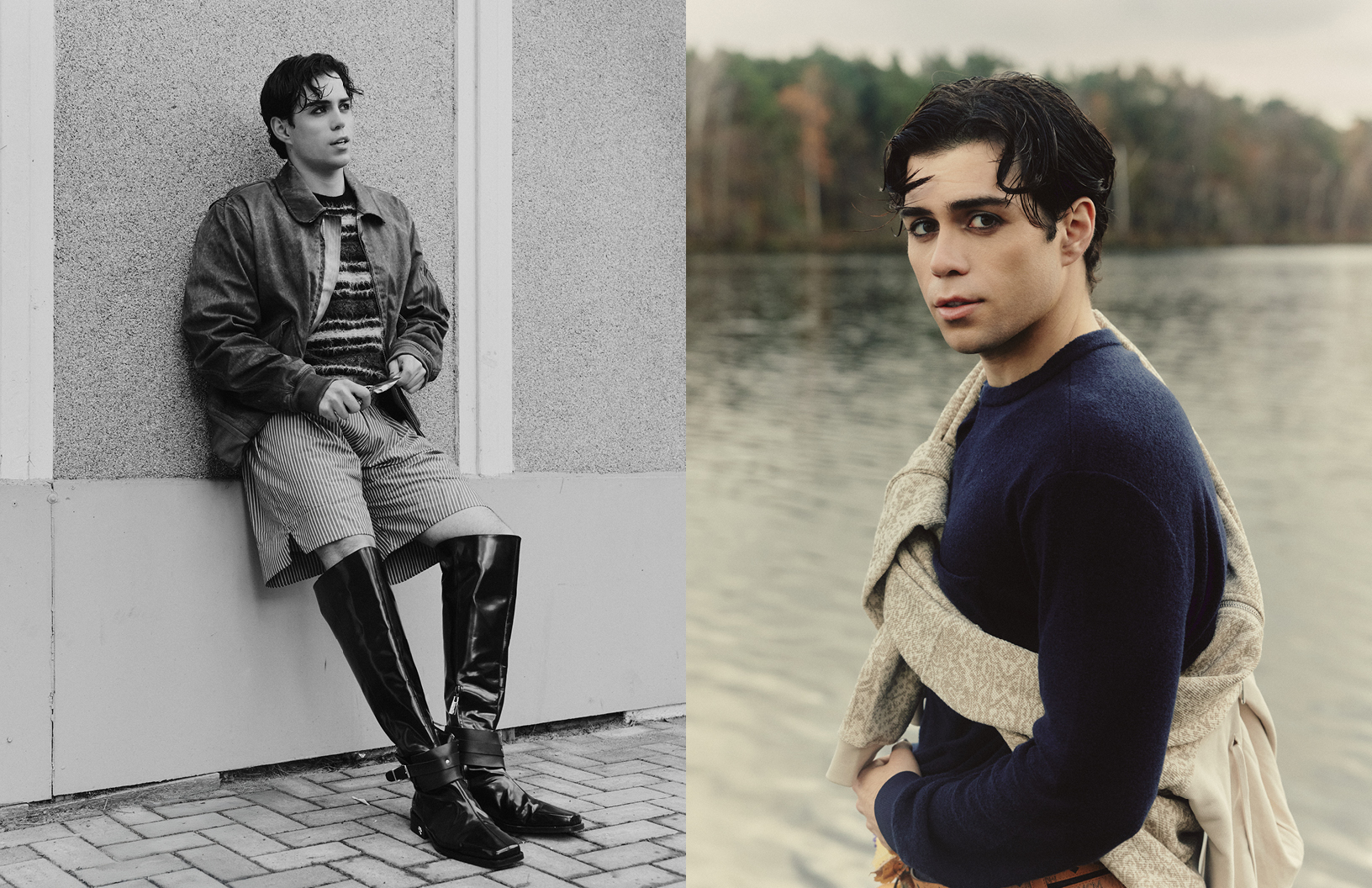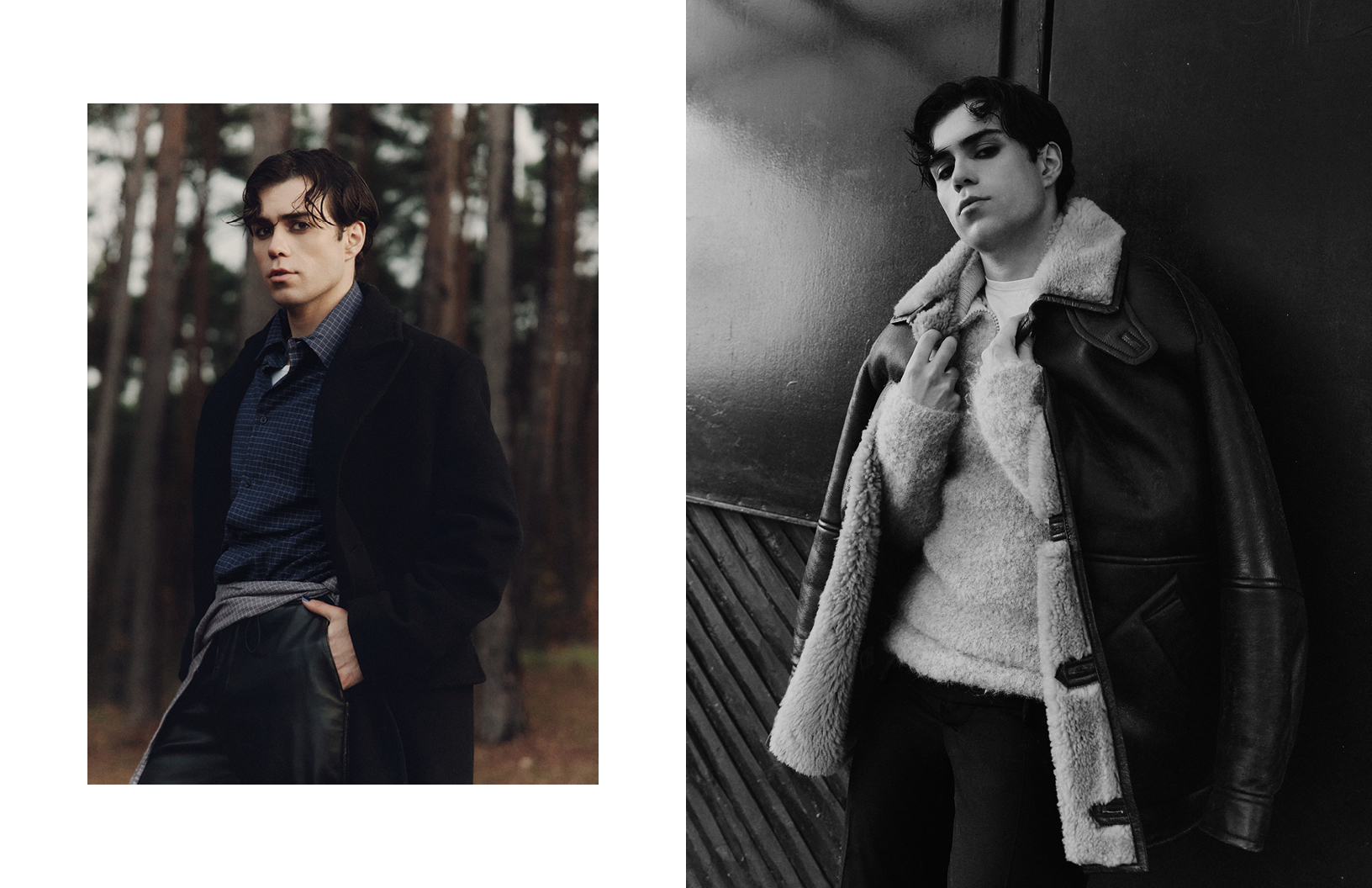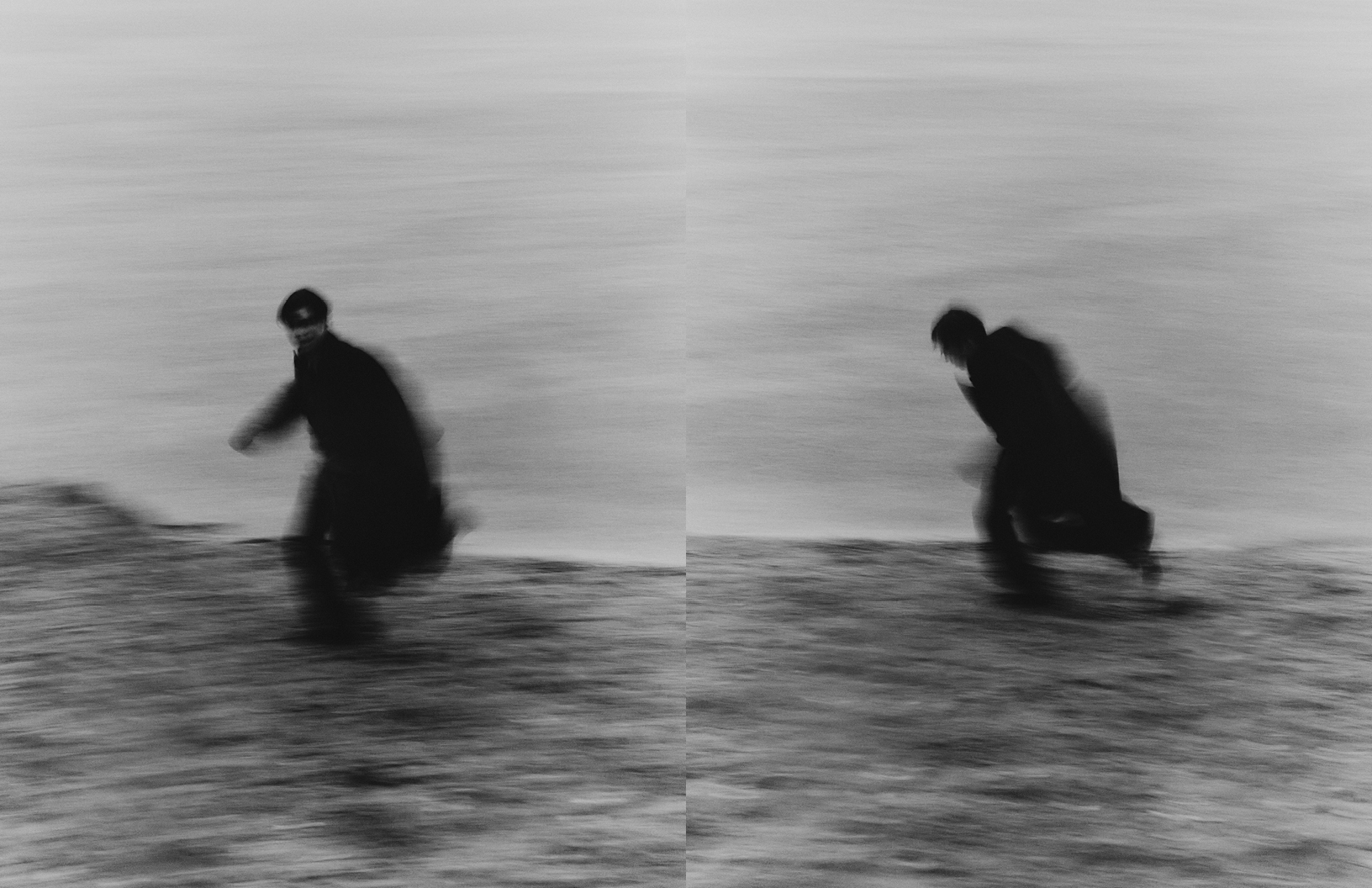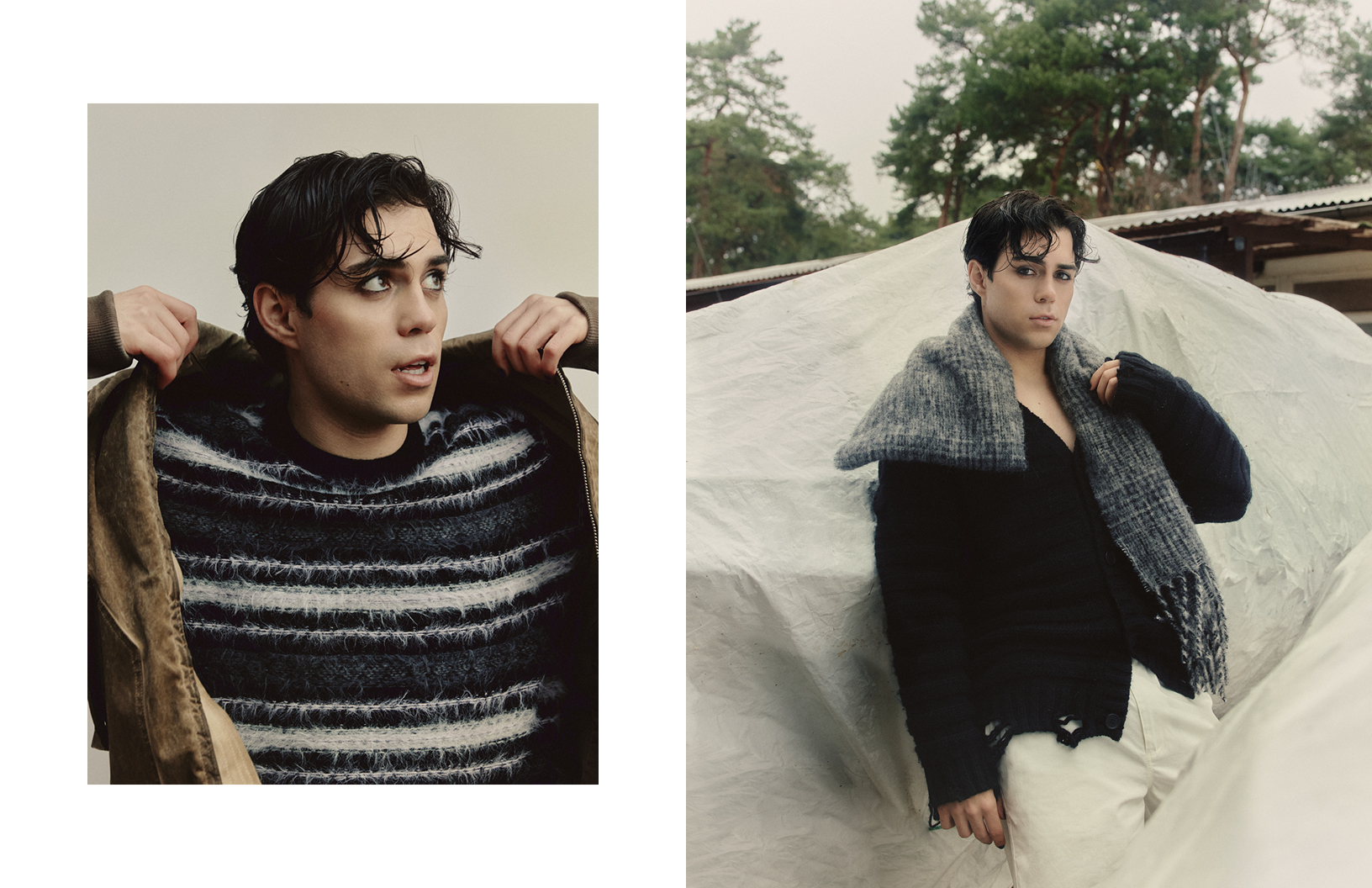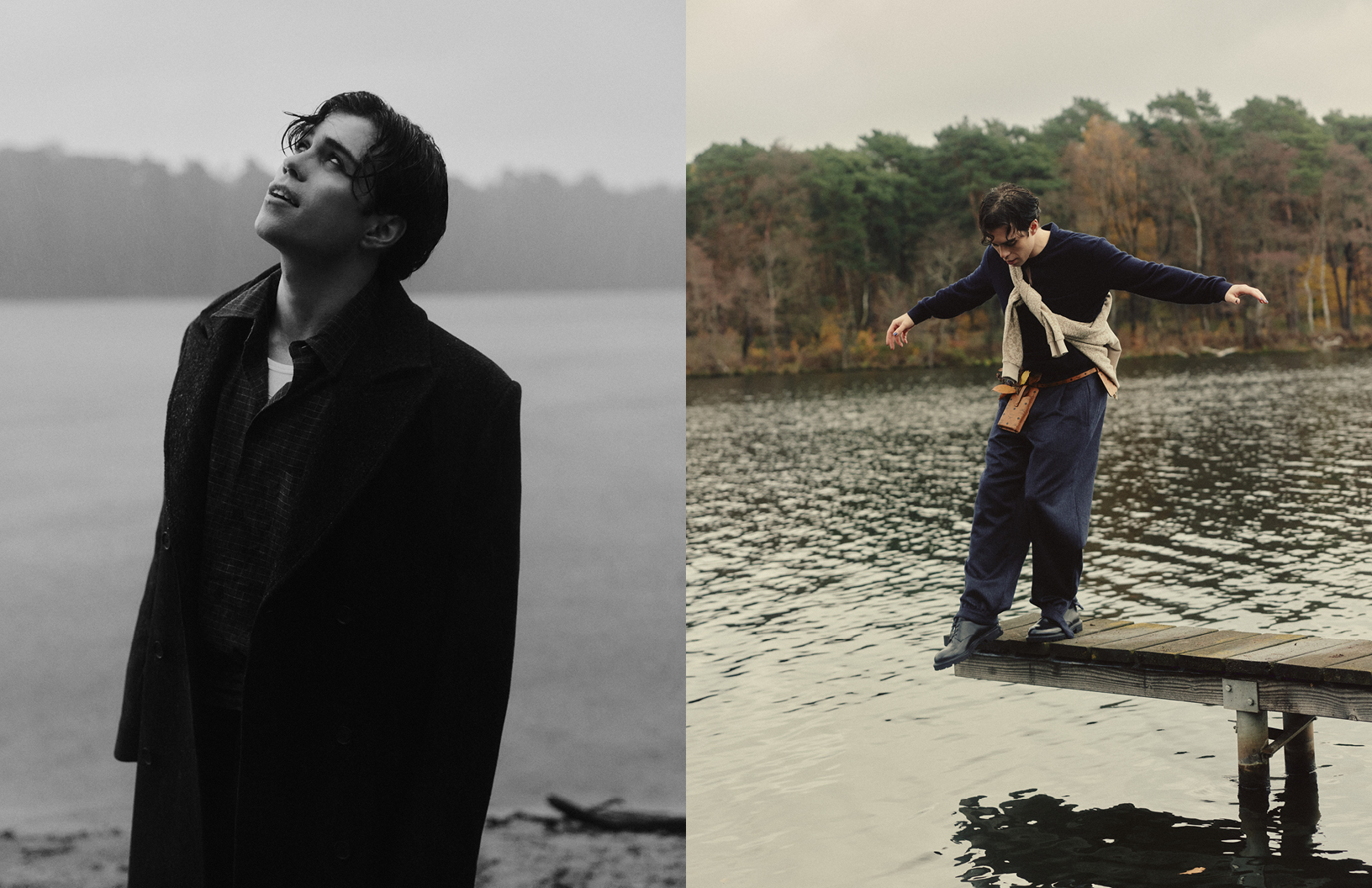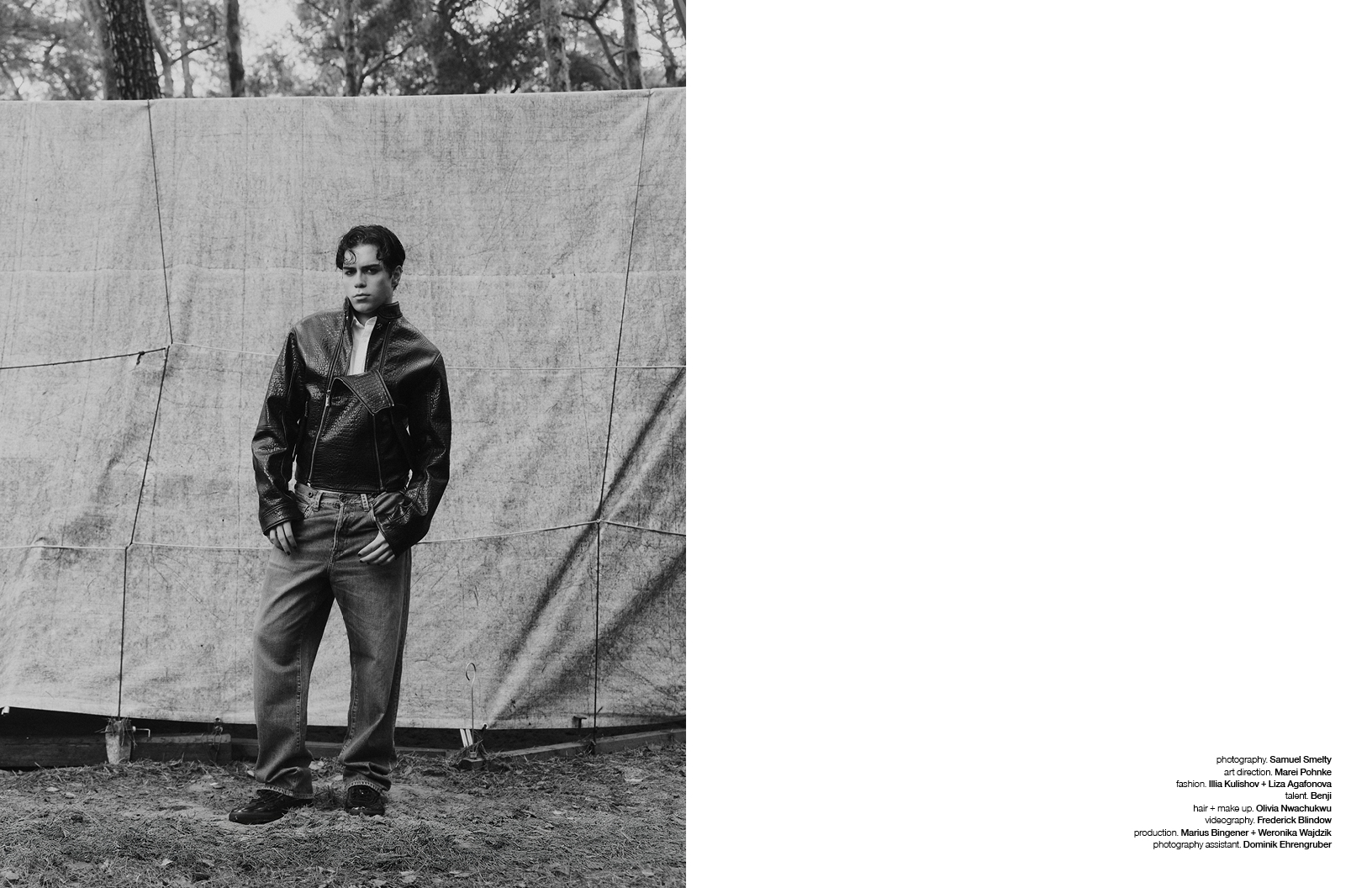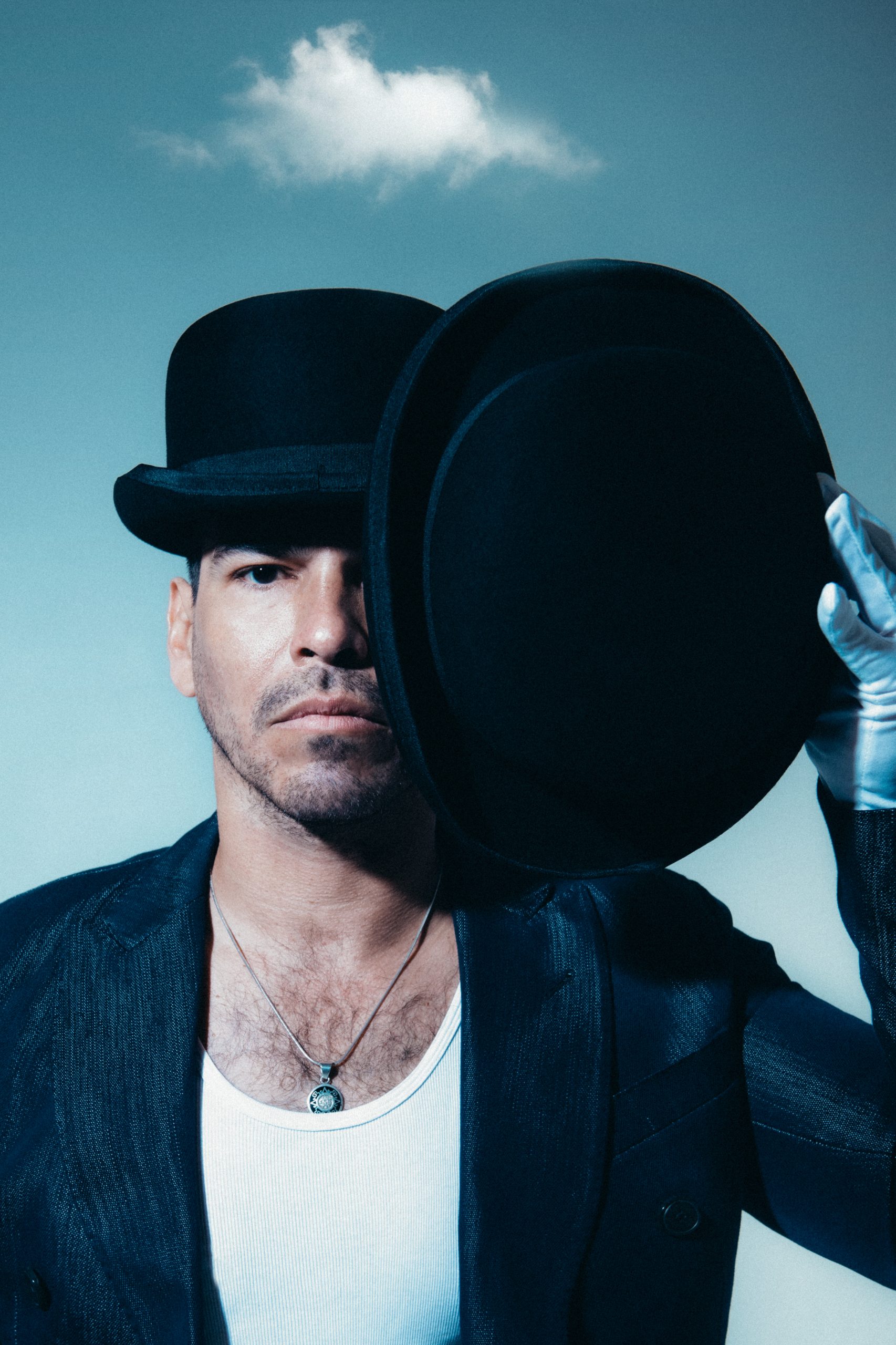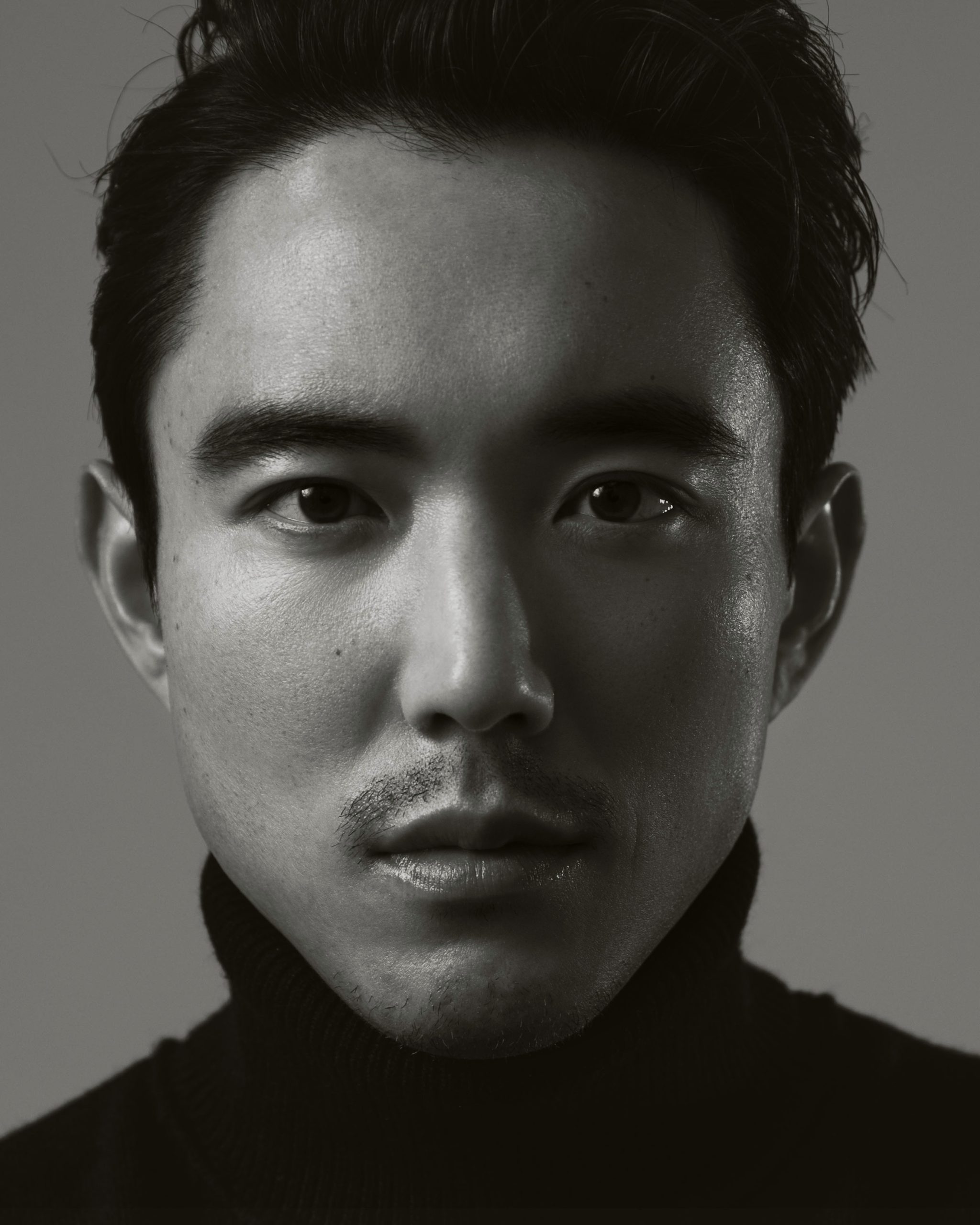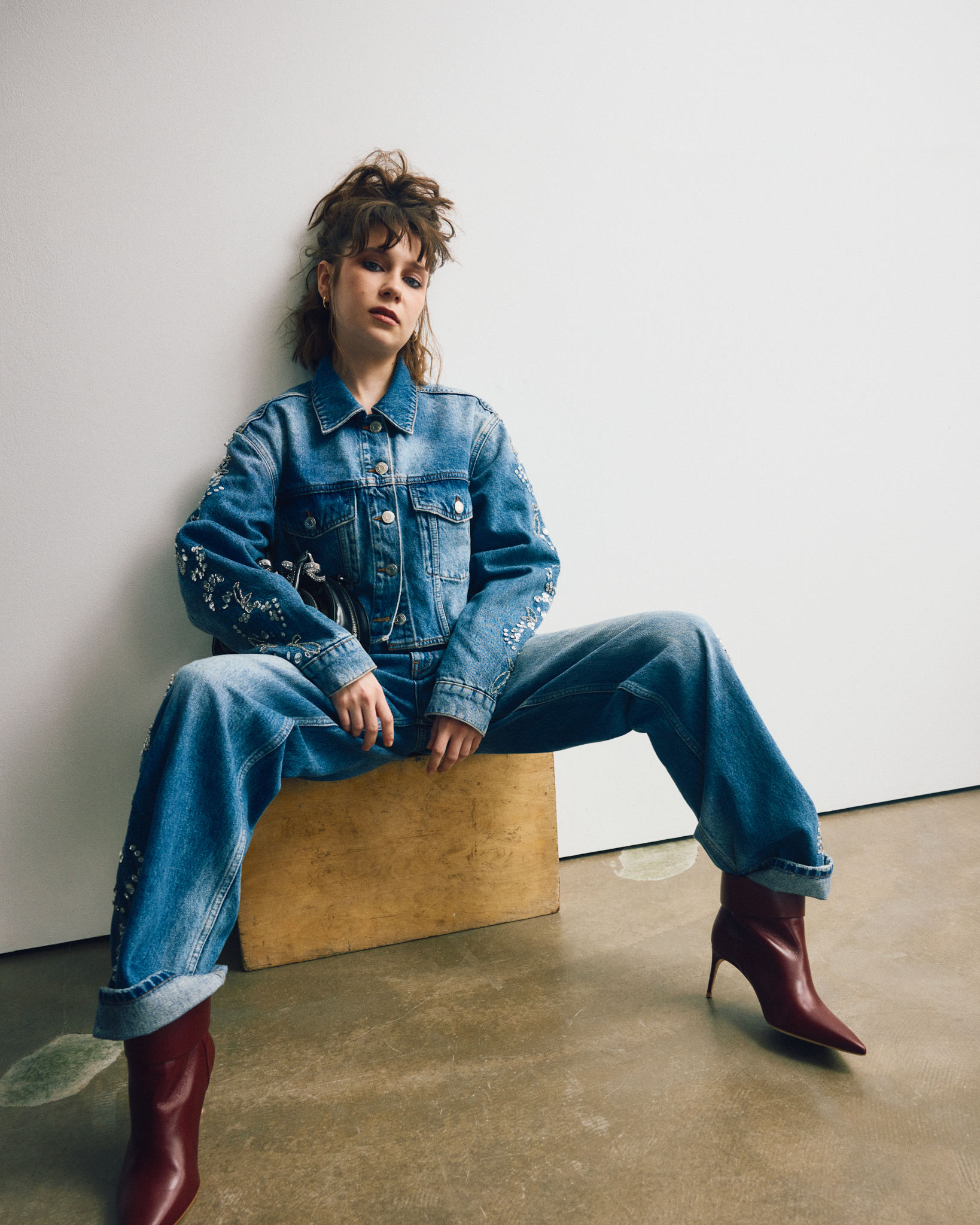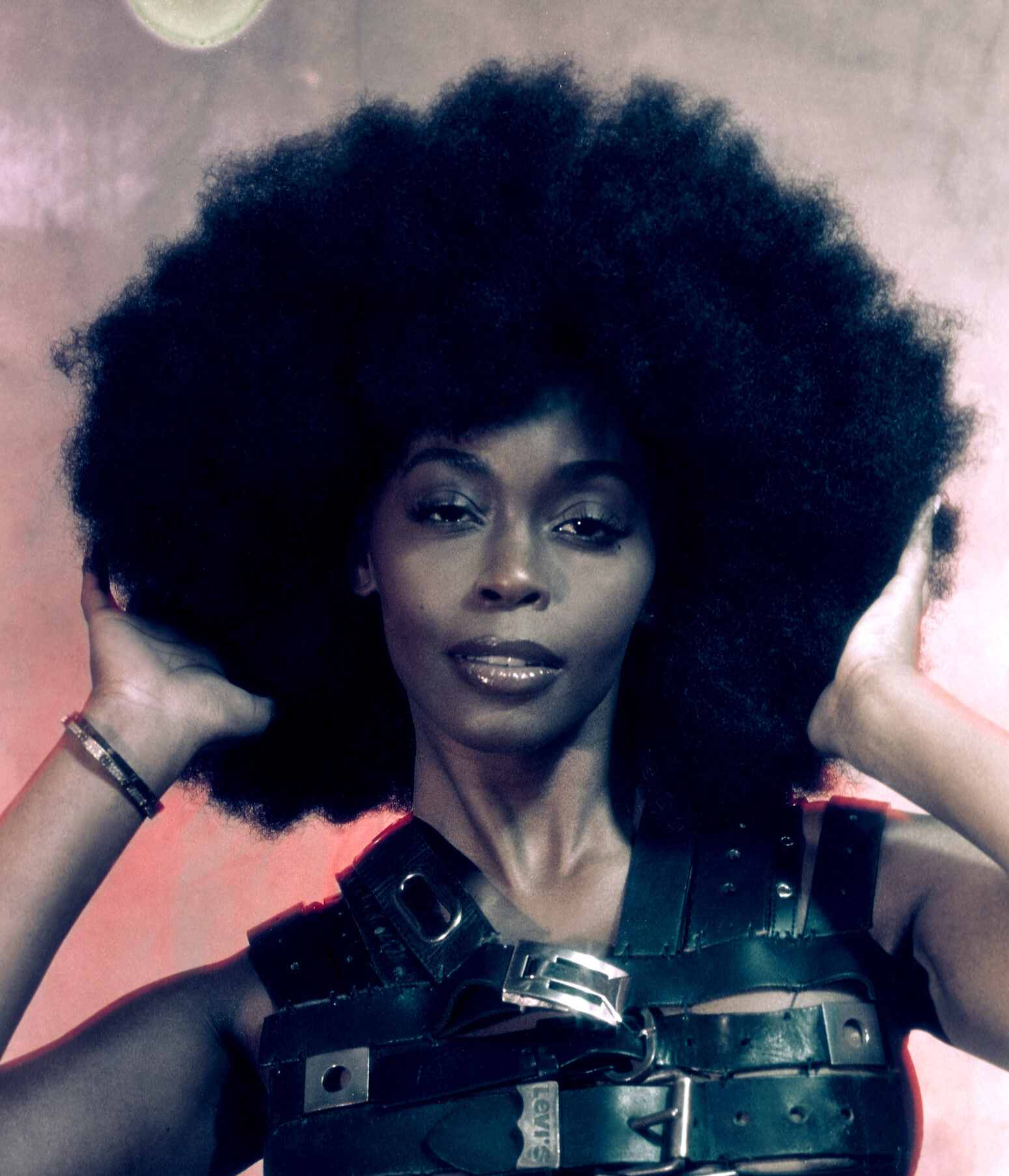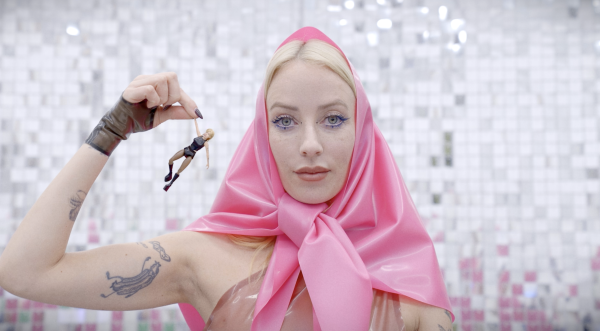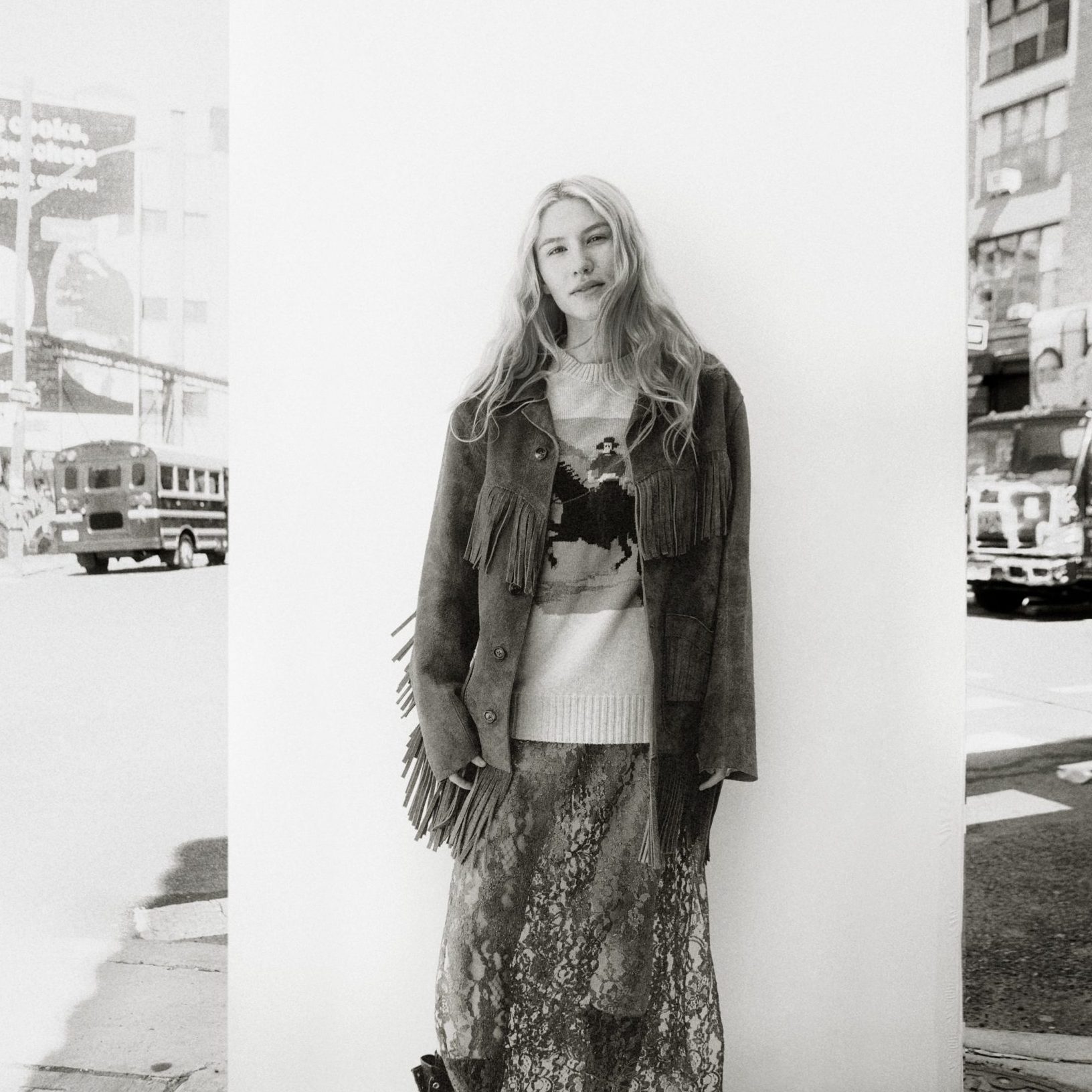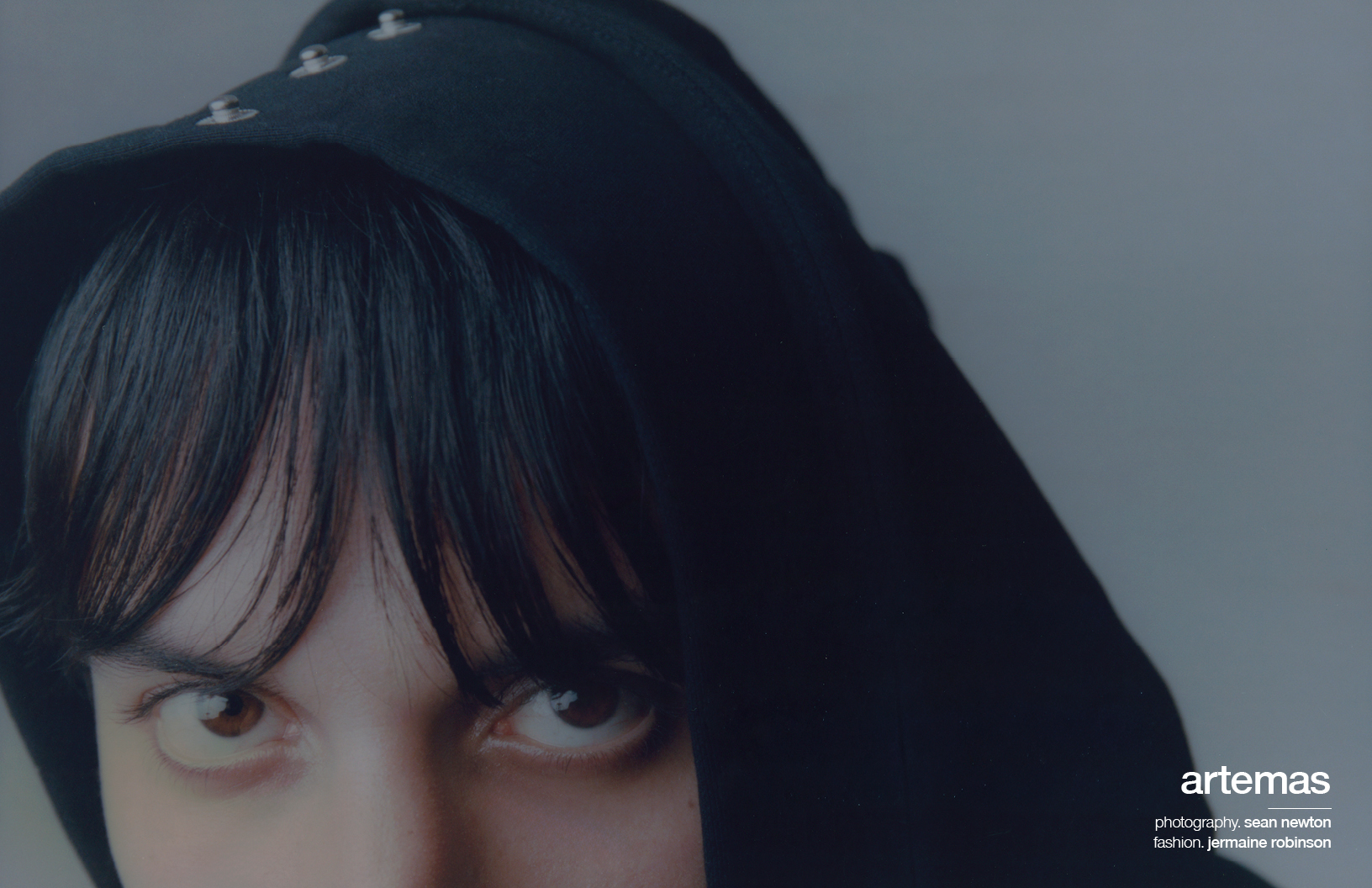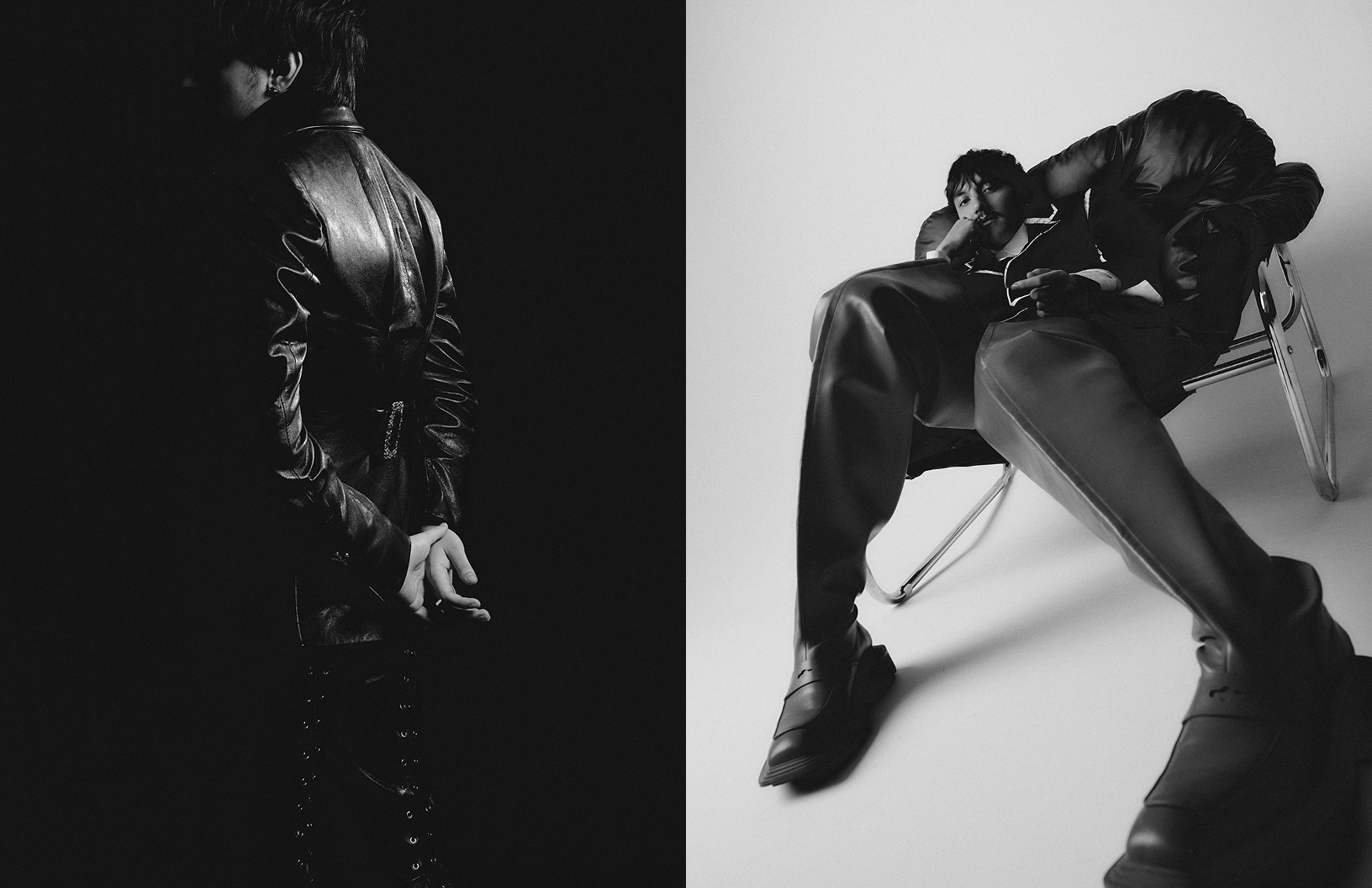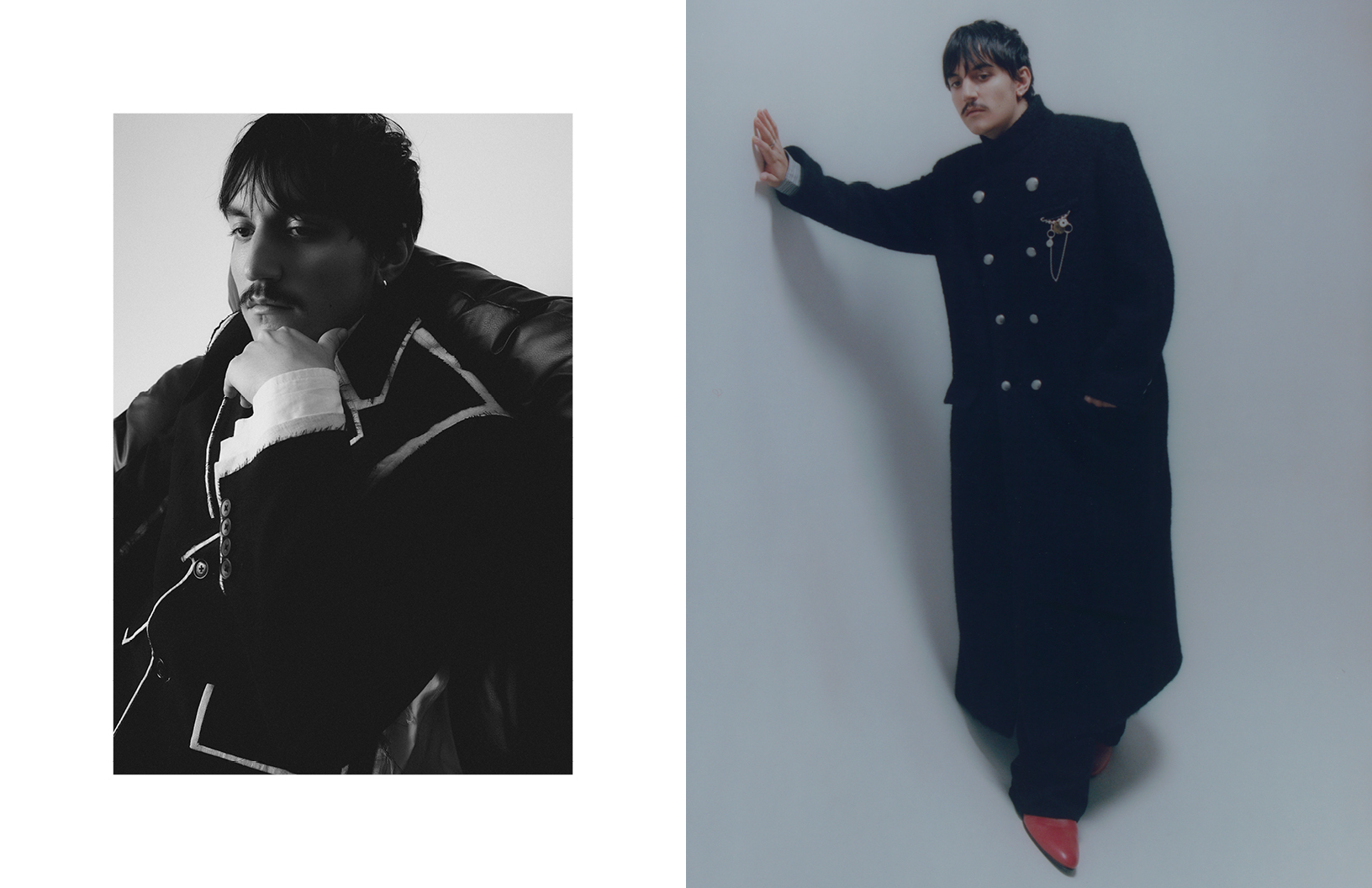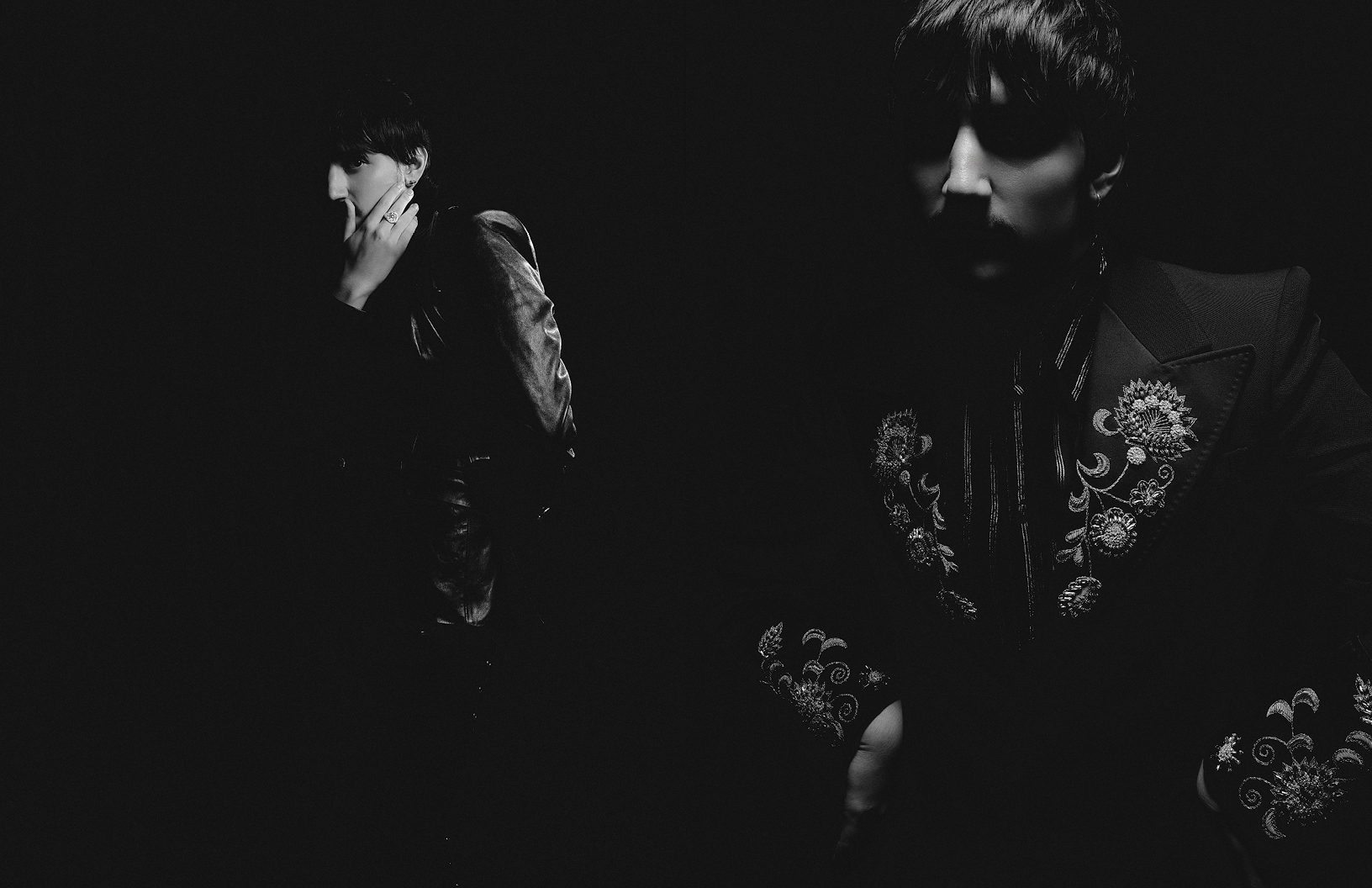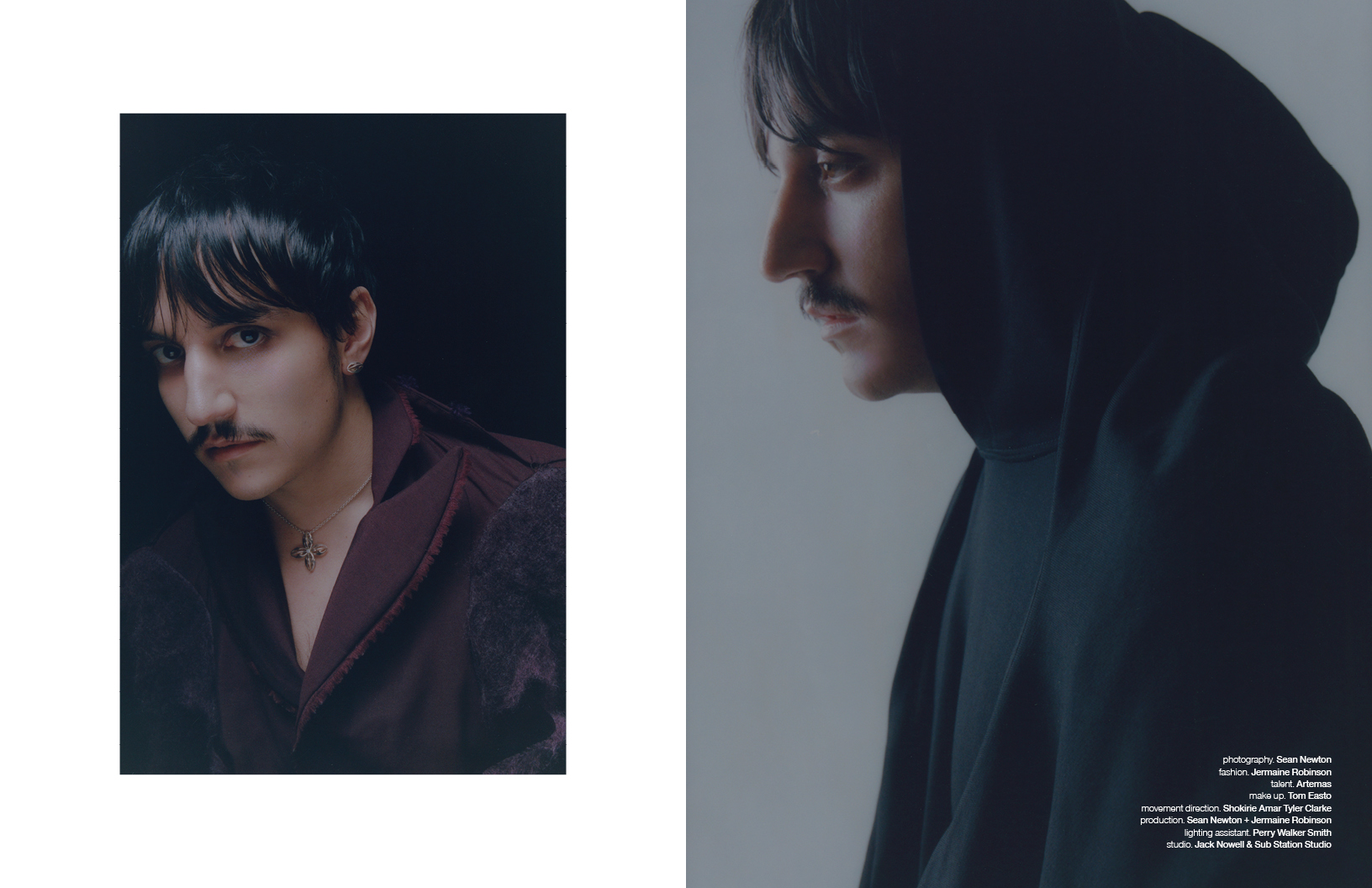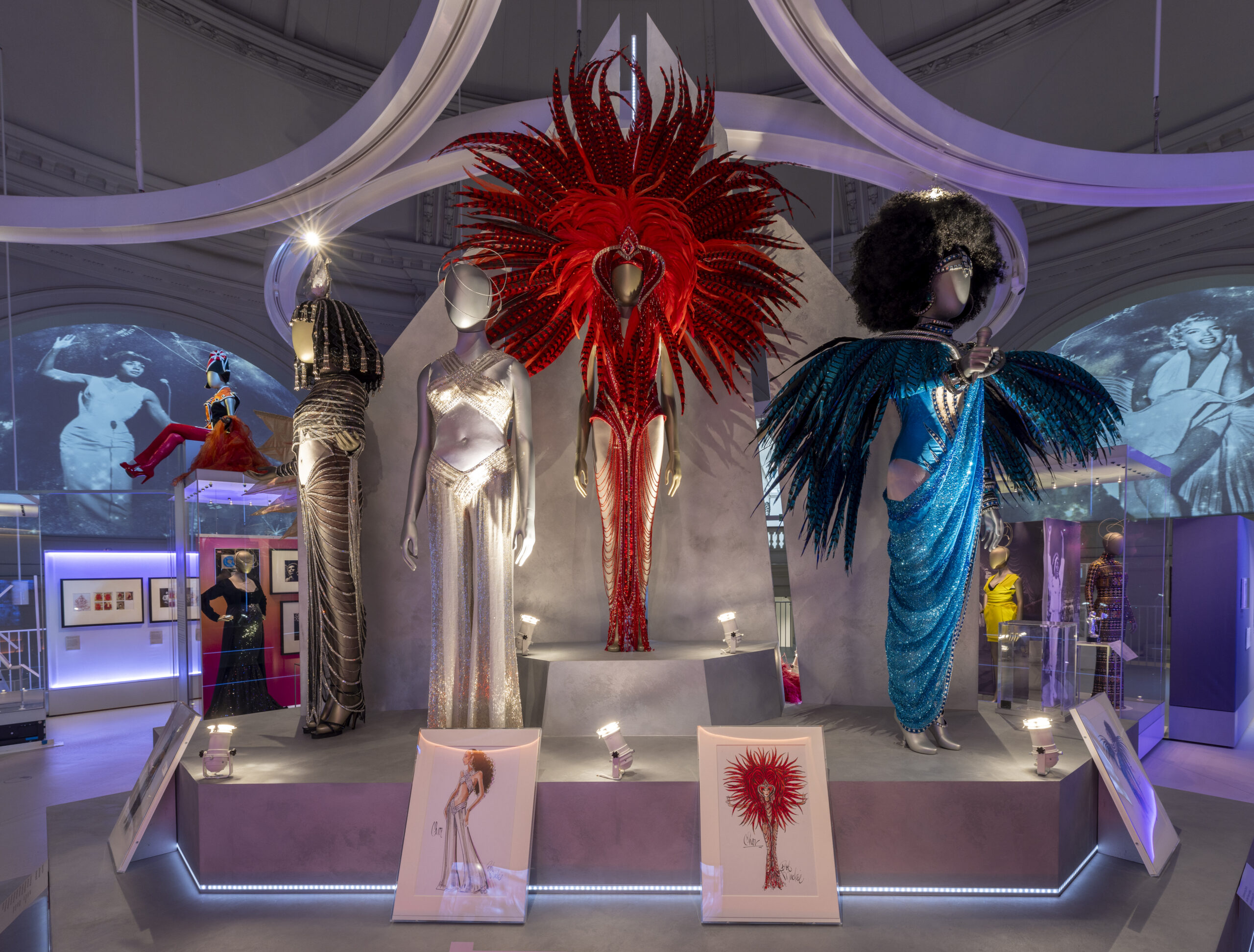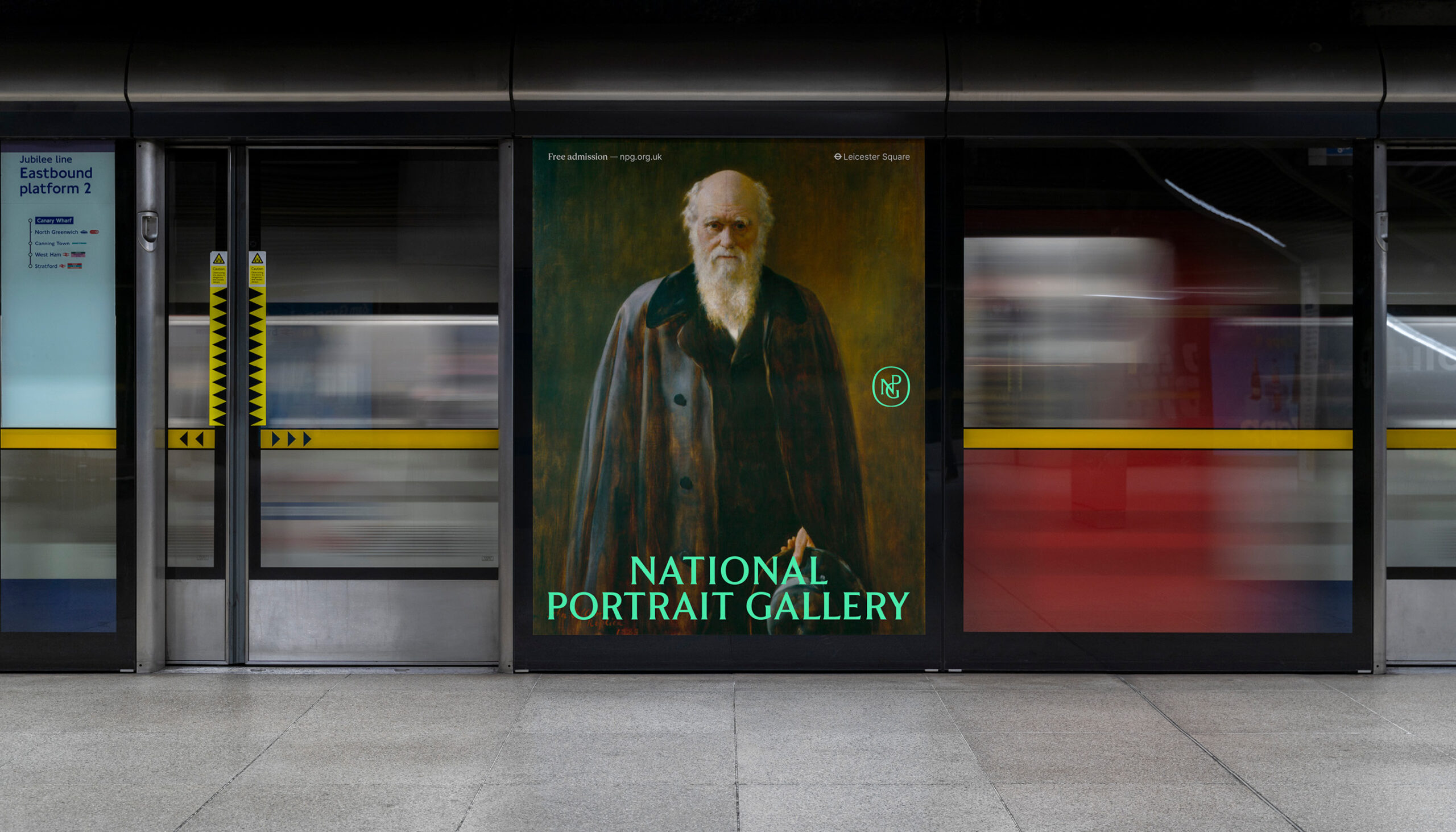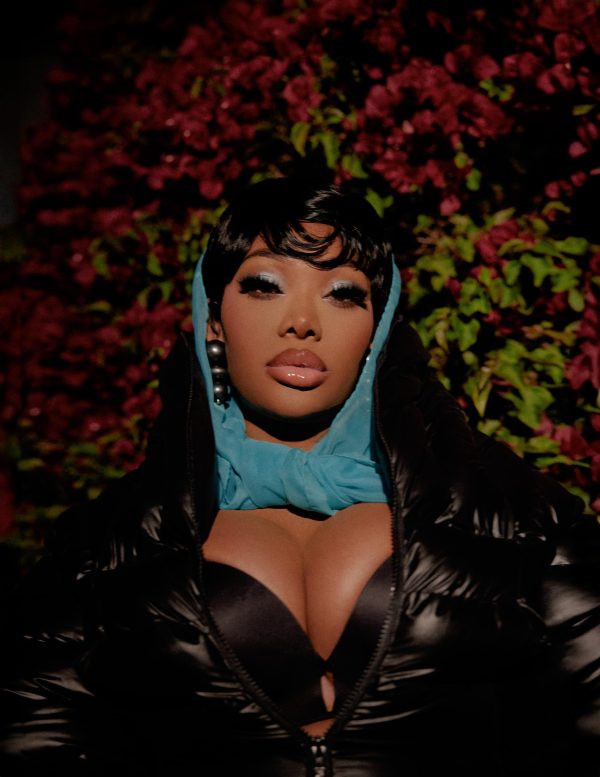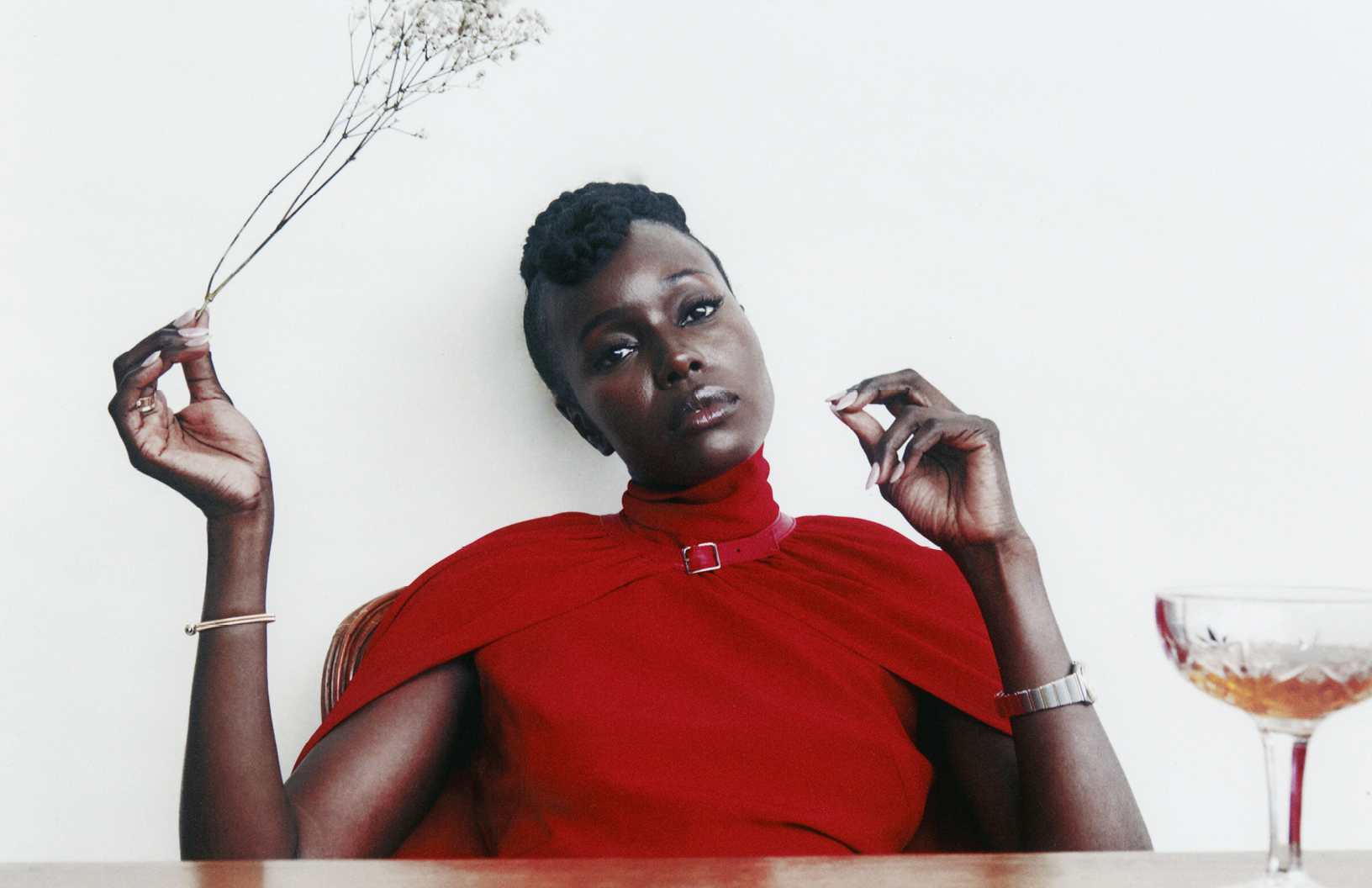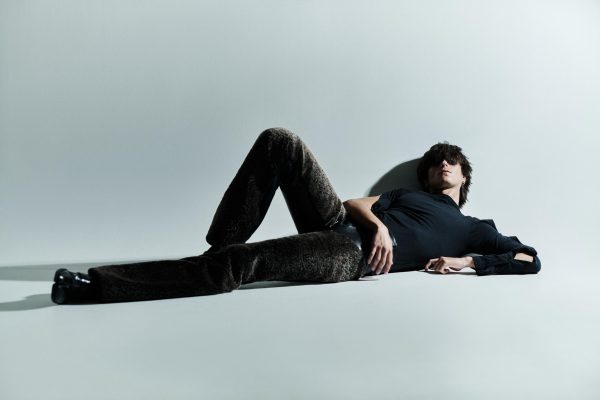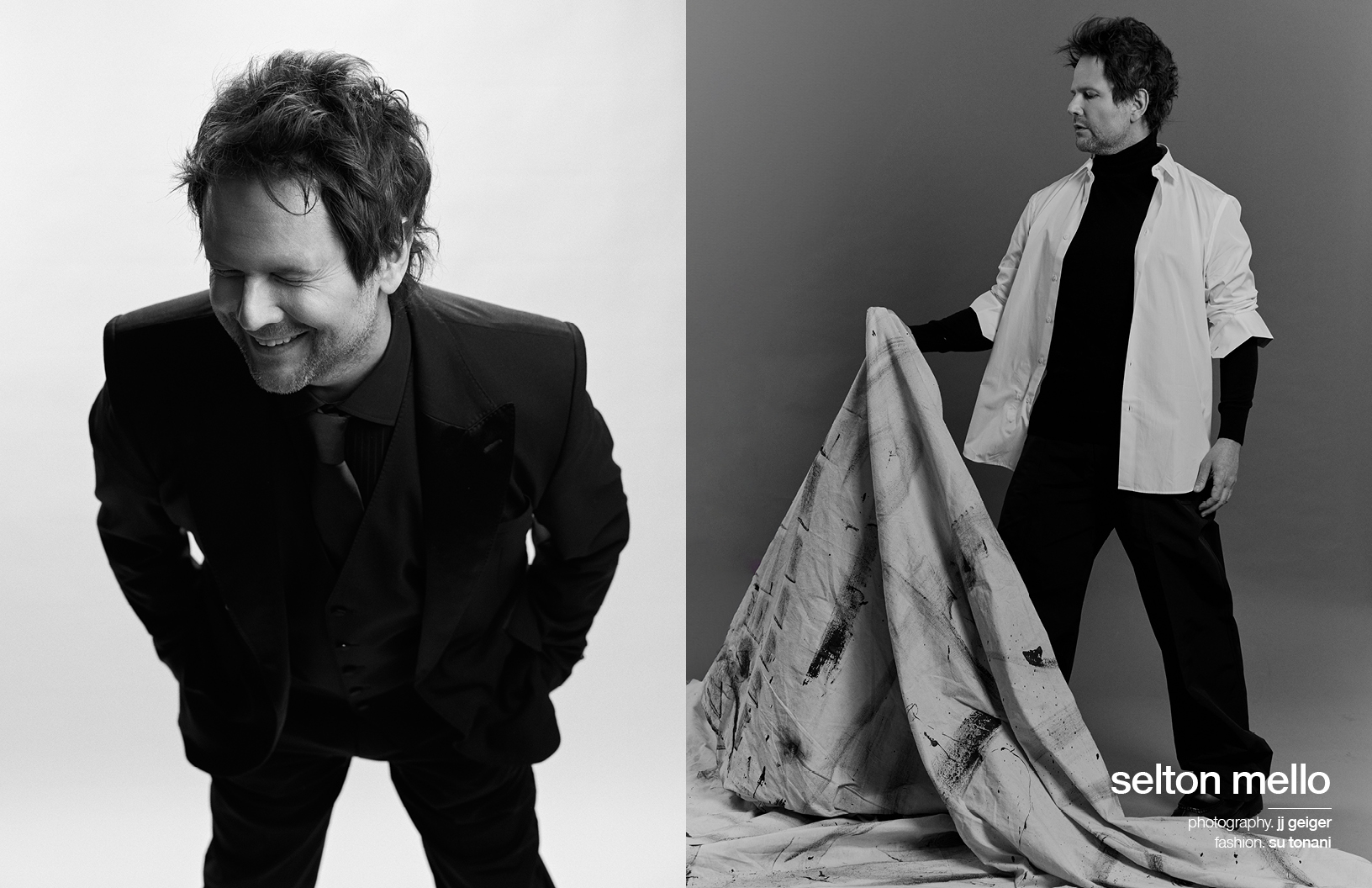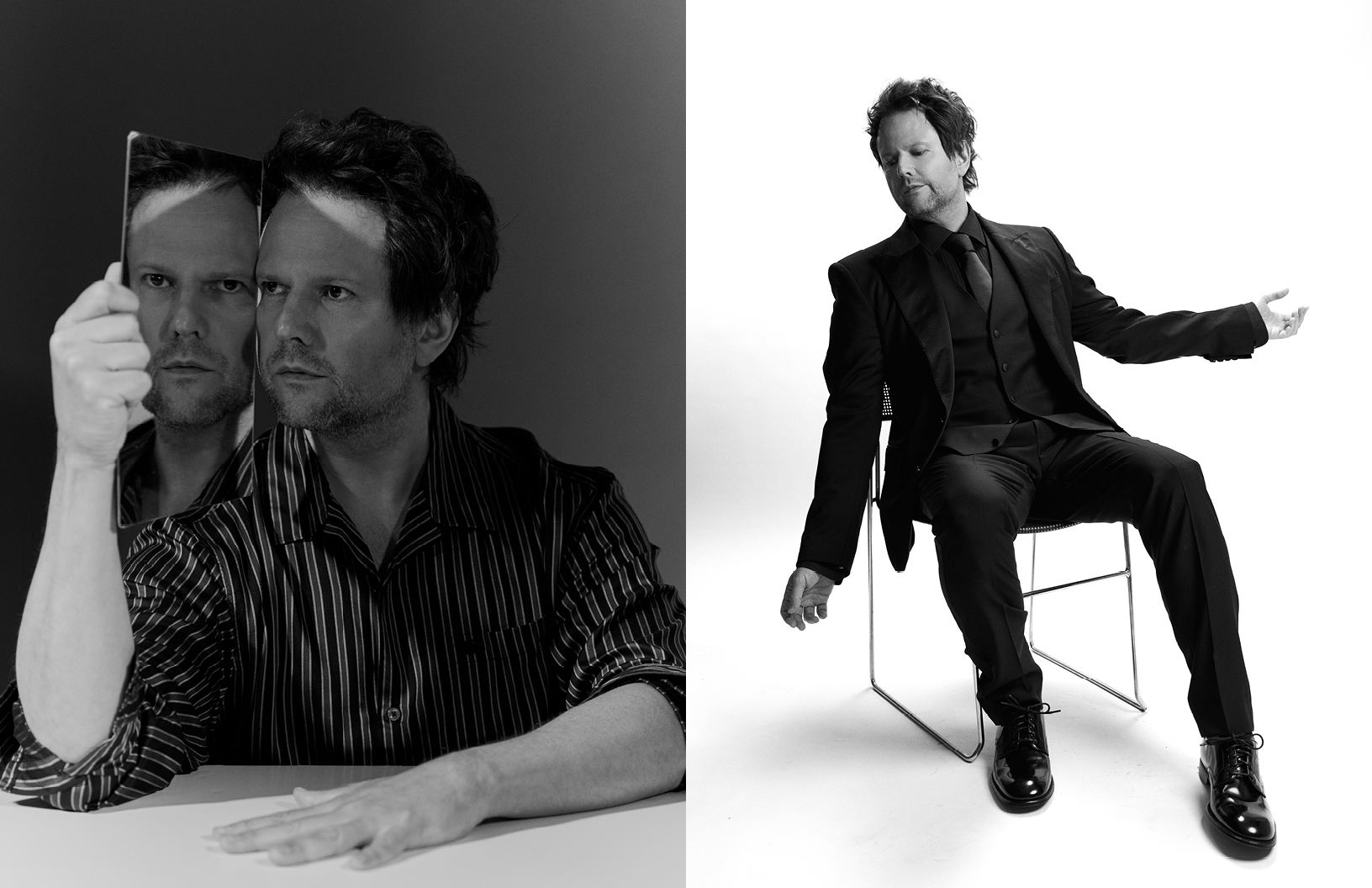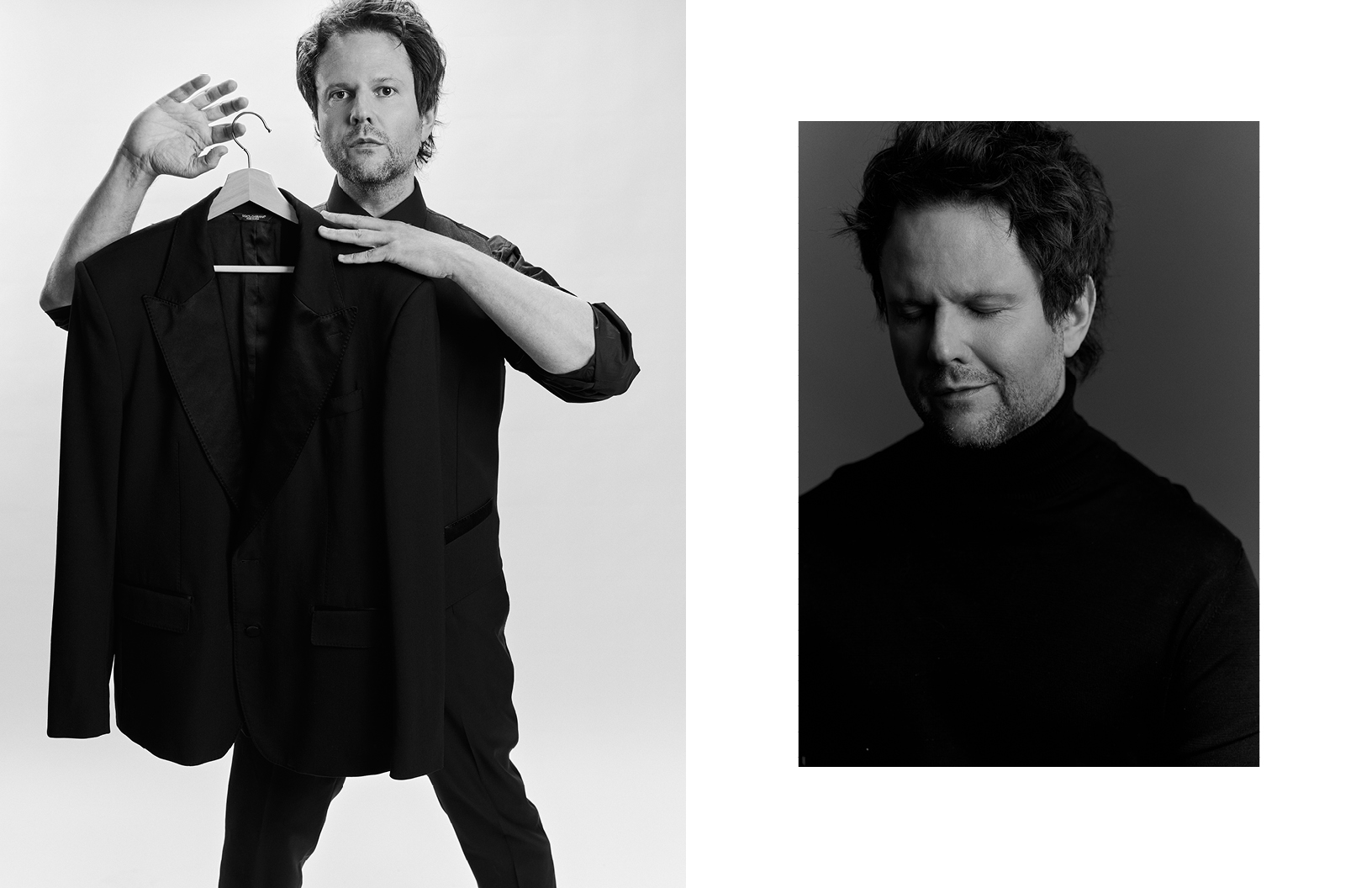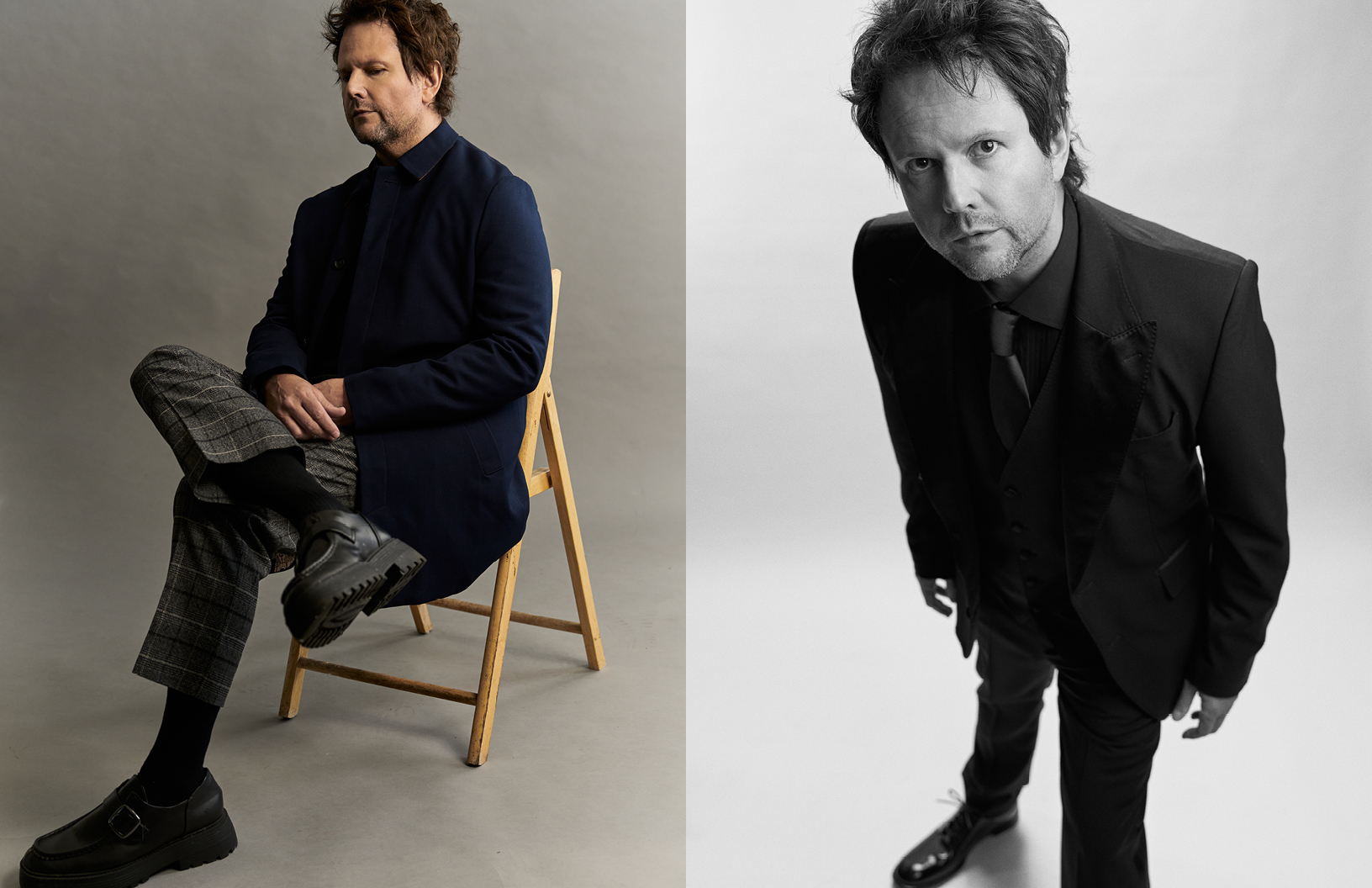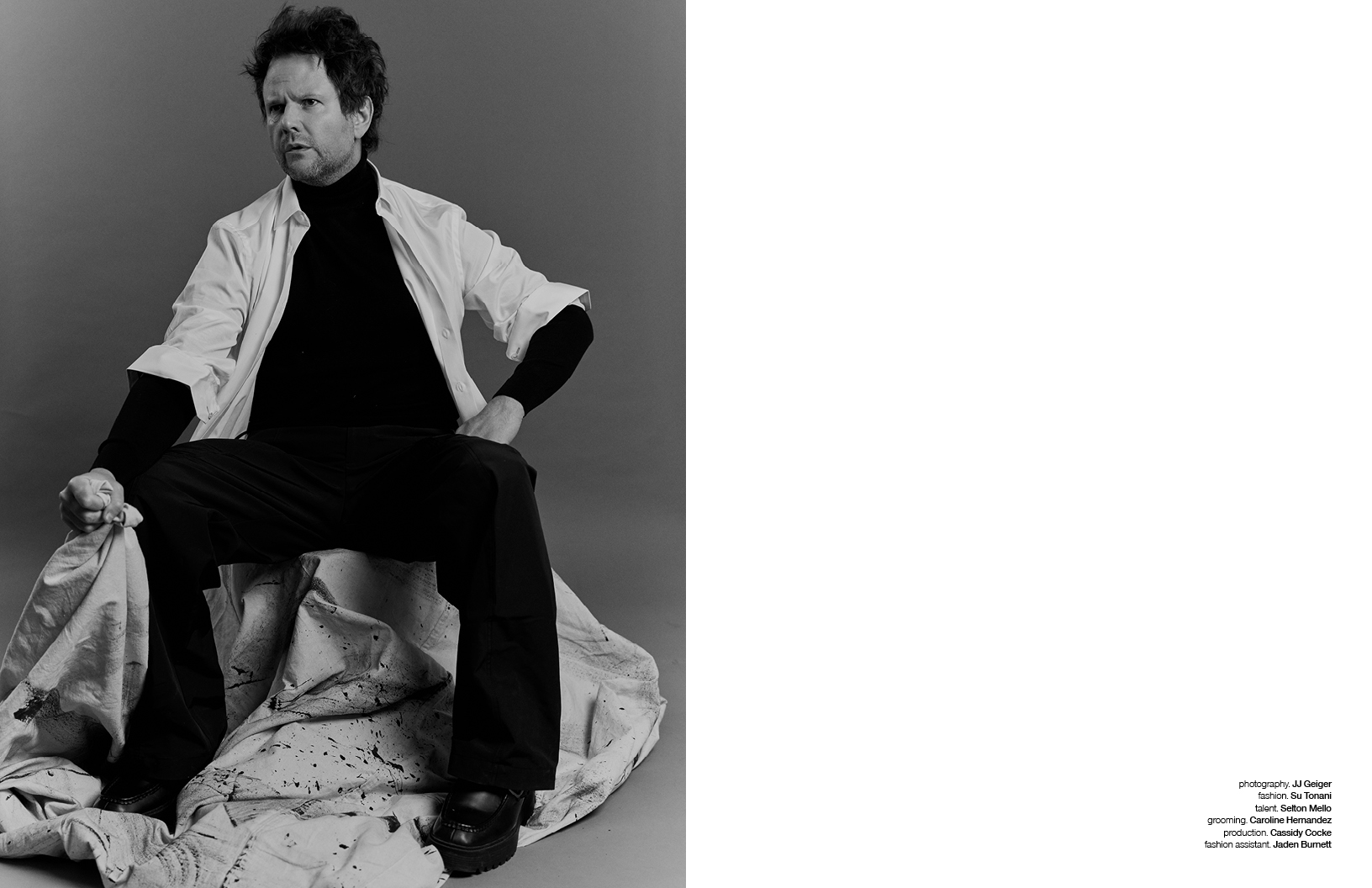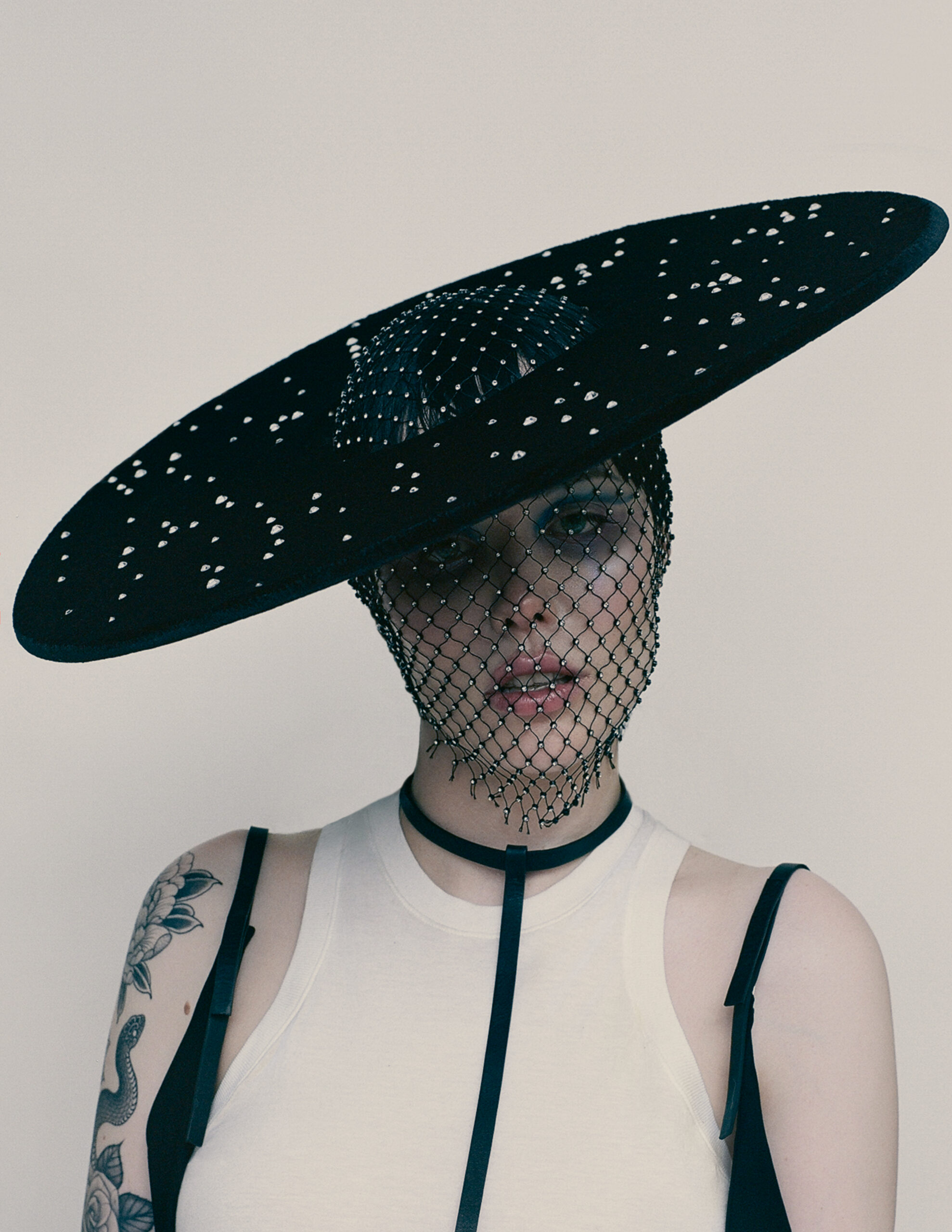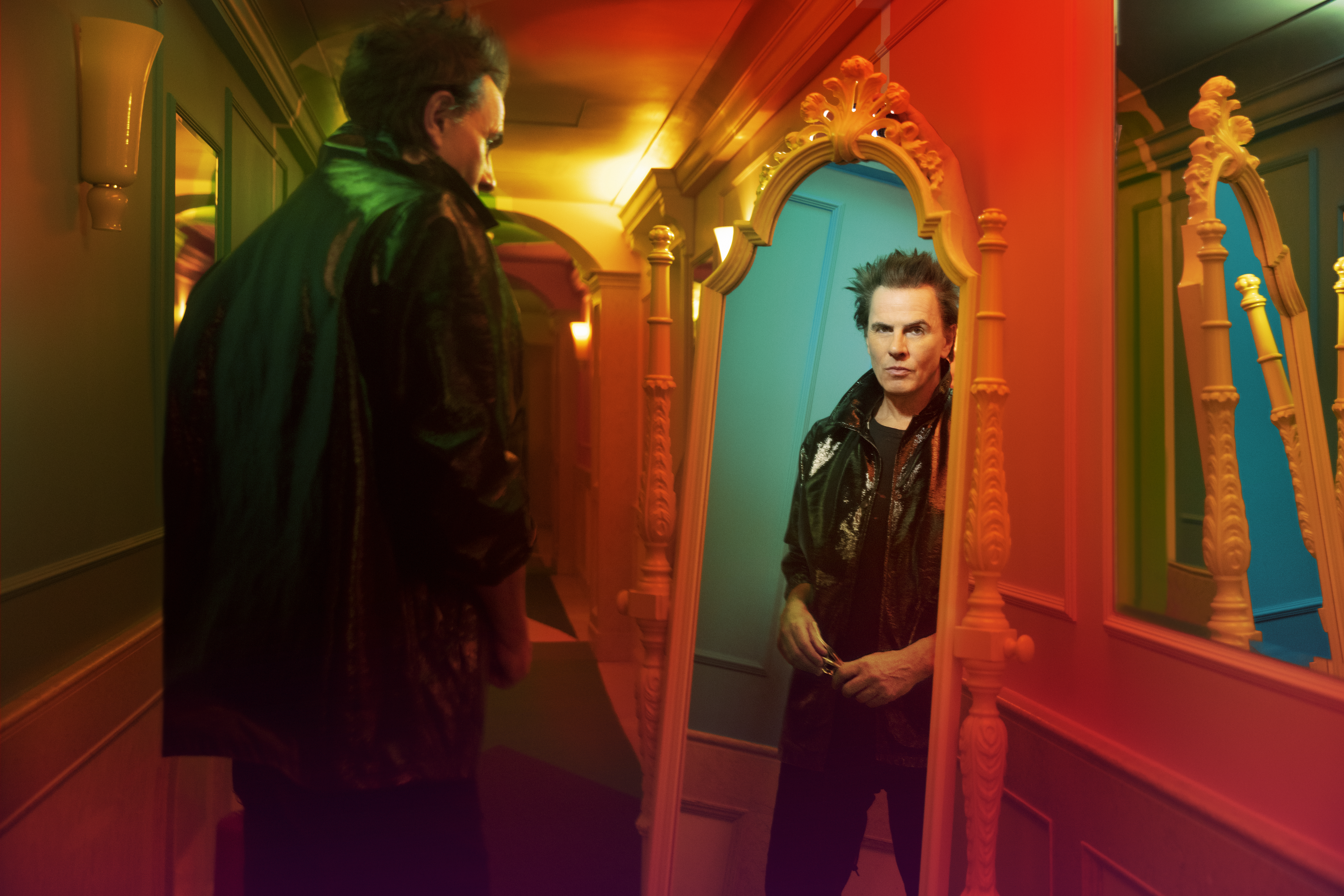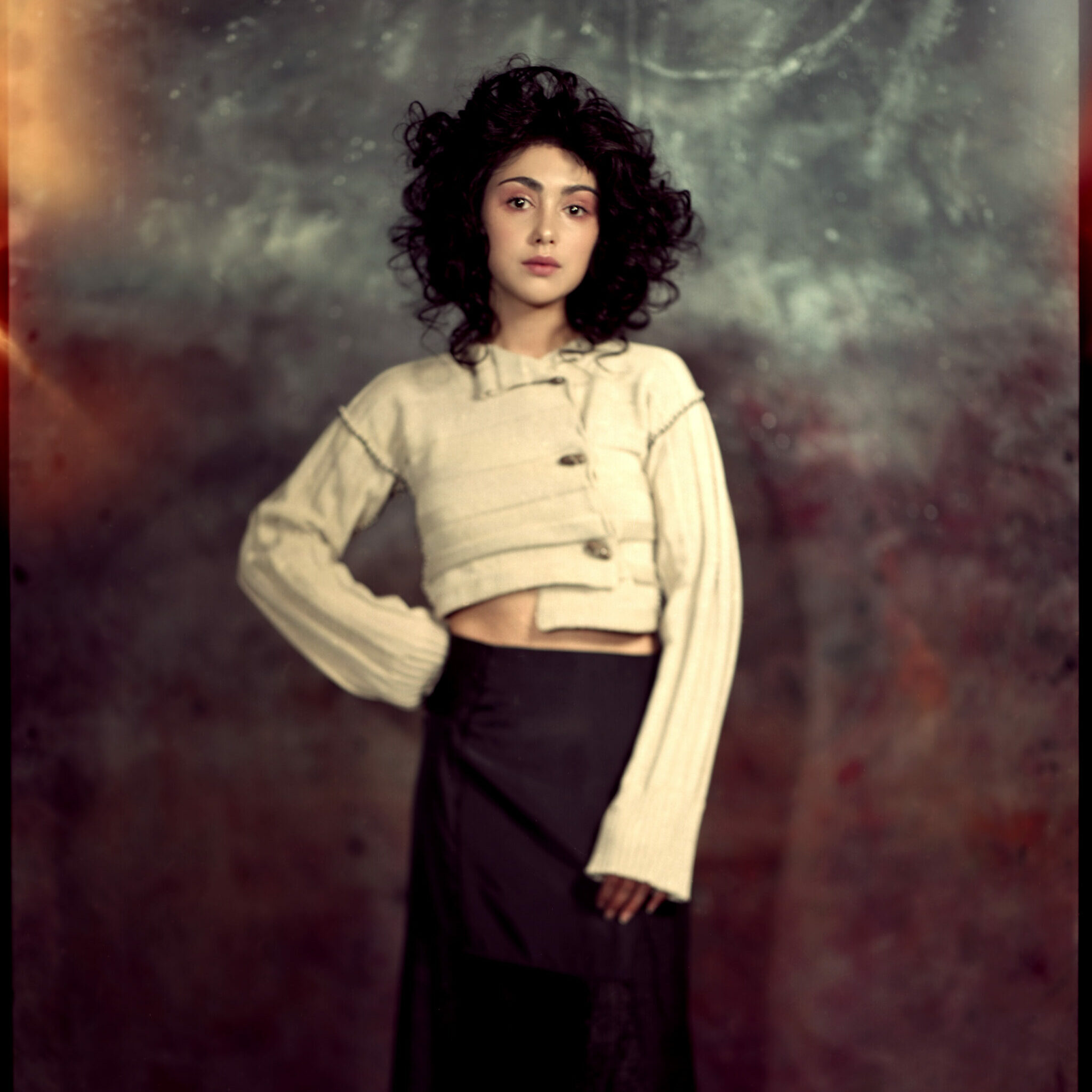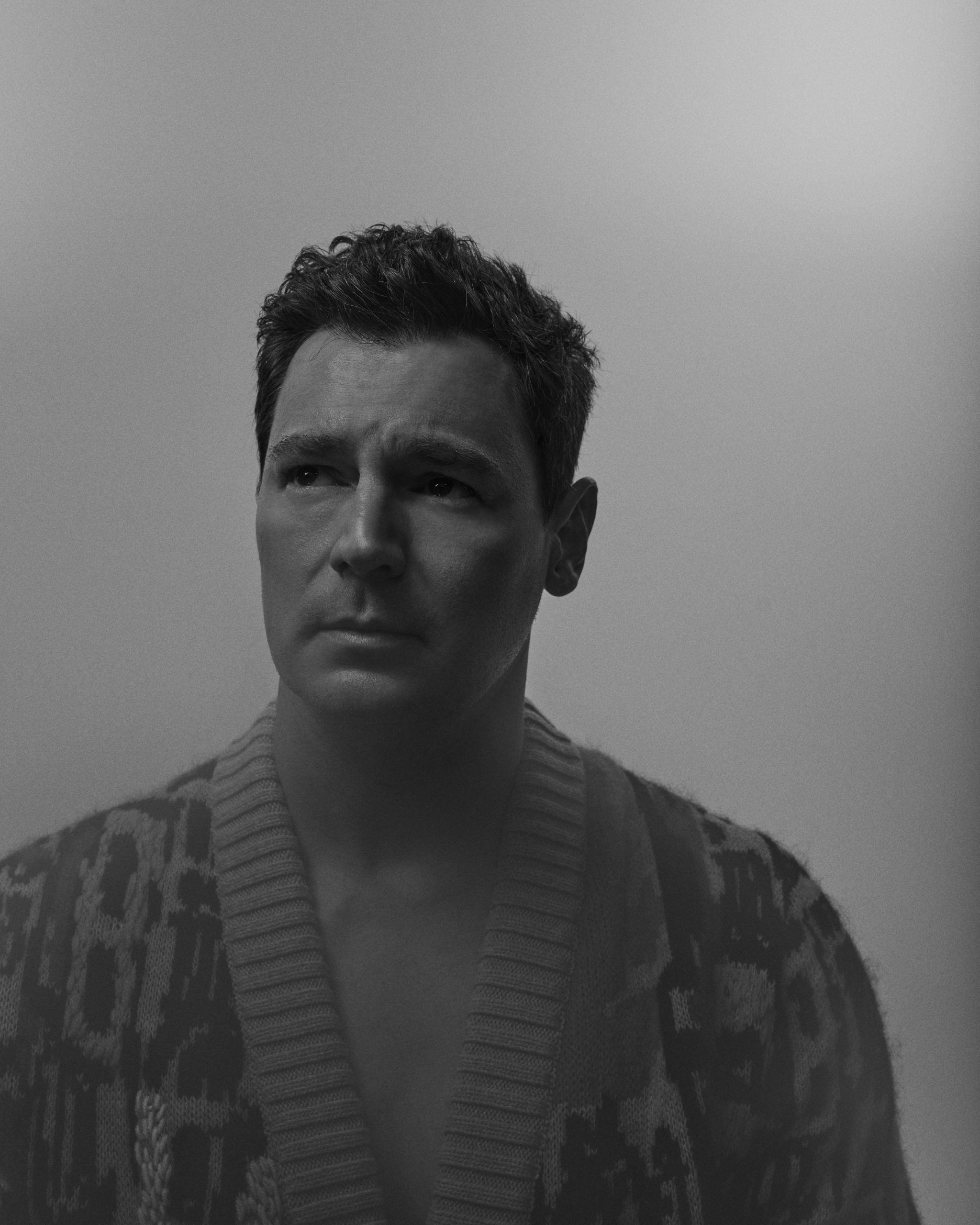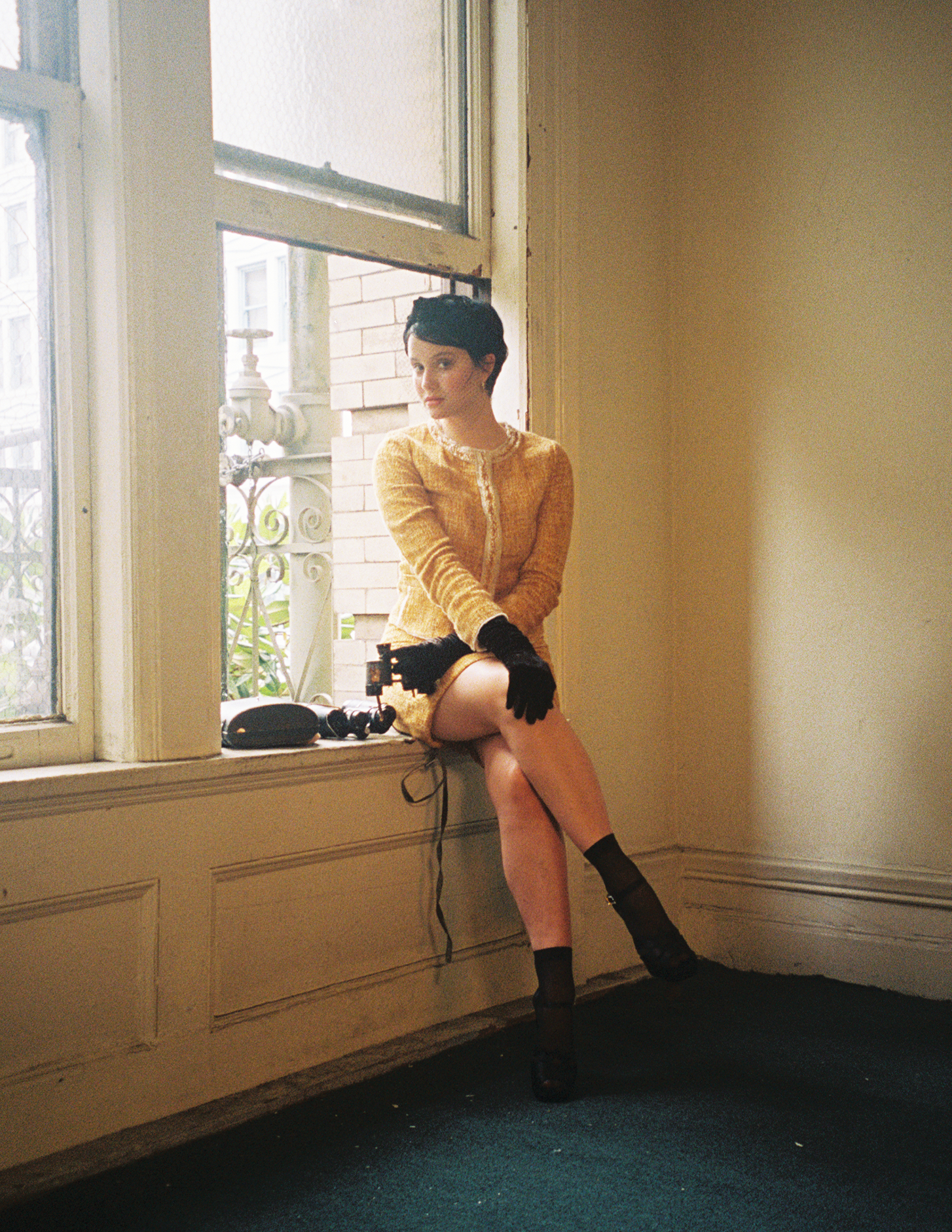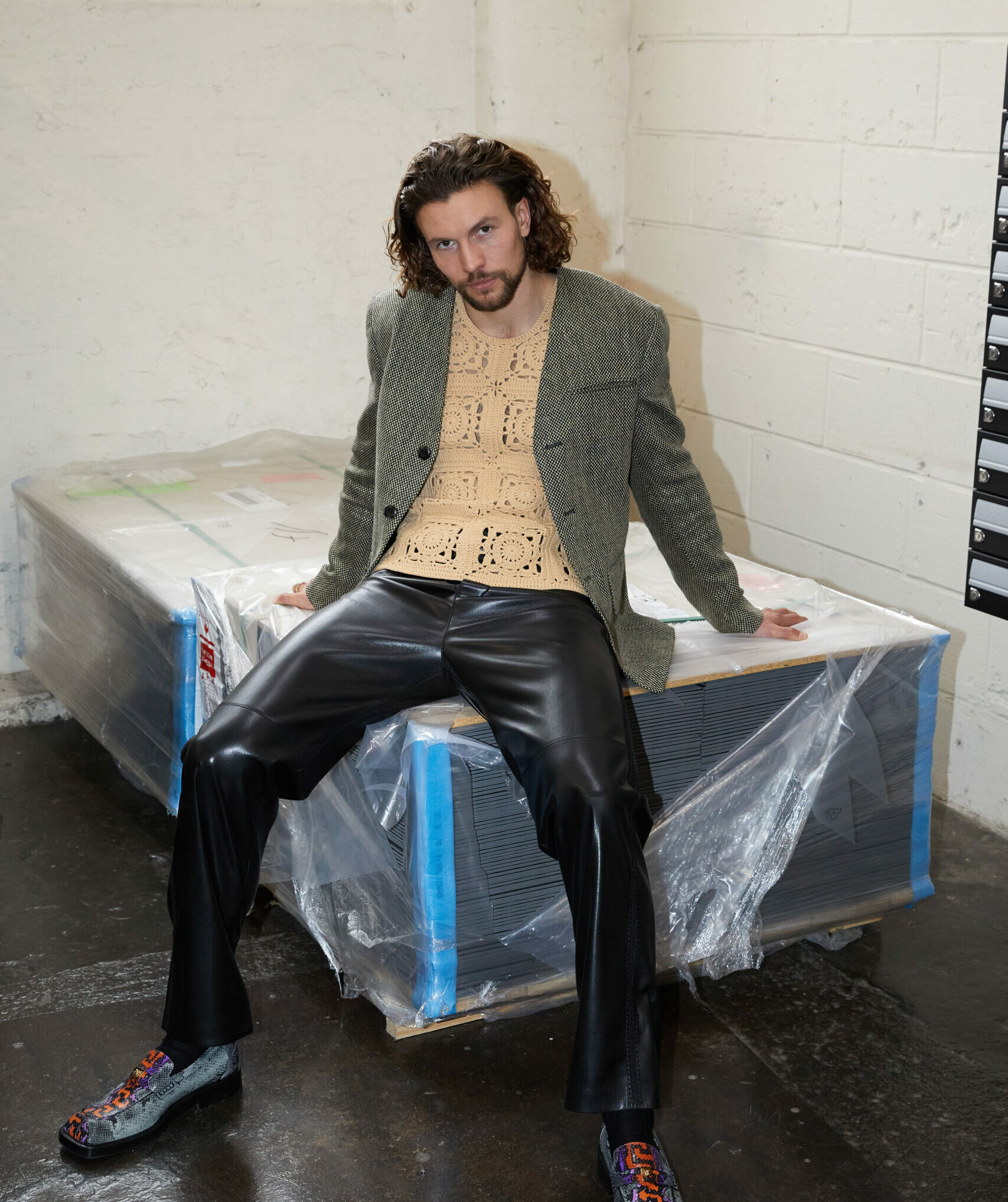After playing the serial killer in Wes Craven’s latest film The Girl in The Photographs, which premiered at the 2015 Toronto International Film Festival, Luke Baines has earned the well-deserved title of breakout star. The actor has been known to pay attention to issues concerning the state of the cultural climate, whilst also being extremely diverse and multi-faceted with regards to the distribution of his talents. Baines has graced the stage, television, and film in Australia, the US and the UK. Ahead of the release of David Robert Mitchell’s crime movie Under the Silver Lake and Halloween-themed movie TRUTH OR DARE, Schön! sat down with the actor to discuss his immersion in the horror genre, drawing the line between acting and real life and his plans for the future.
Born in the UK, brought up in Australia, and now living in the US – how have you managed with the hectic change in country of residence?
You know it’s weird, I’ve spent more time in America than I have in England, and even more time in Australia, but I was raised in a very English -and Northern- household so there’s a big part of me that doesn’t really know where I’m from. Perhaps that’s why I’ve always felt like the odd man out, because I’ve never really belonged anywhere. My experience moving countries -to London in my late teens, LA early 20s- was indicative of that. I adapted fairly quickly, but both times there was a massive and uncomfortable learning curve.
You’ve modelled, worked in theatre and in film. Are there any transferable skills that you have gained throughout your career that can be applied to all three?
Selective hearing sure helps. You figure out early on that everyone is going to have opinions of you and what you do, and for your own sanity, you have to decide which ones to let in and which ones to ignore. At the end of the day all three are artistic expressions, so you have to commit to putting a piece of yourself on the line, and some people are going to like it, and some people aren’t. That’s the subjective nature of the beast. The trick seems to be not letting how other people feel, affect how I feel – whether it is for the better, or for the worse.
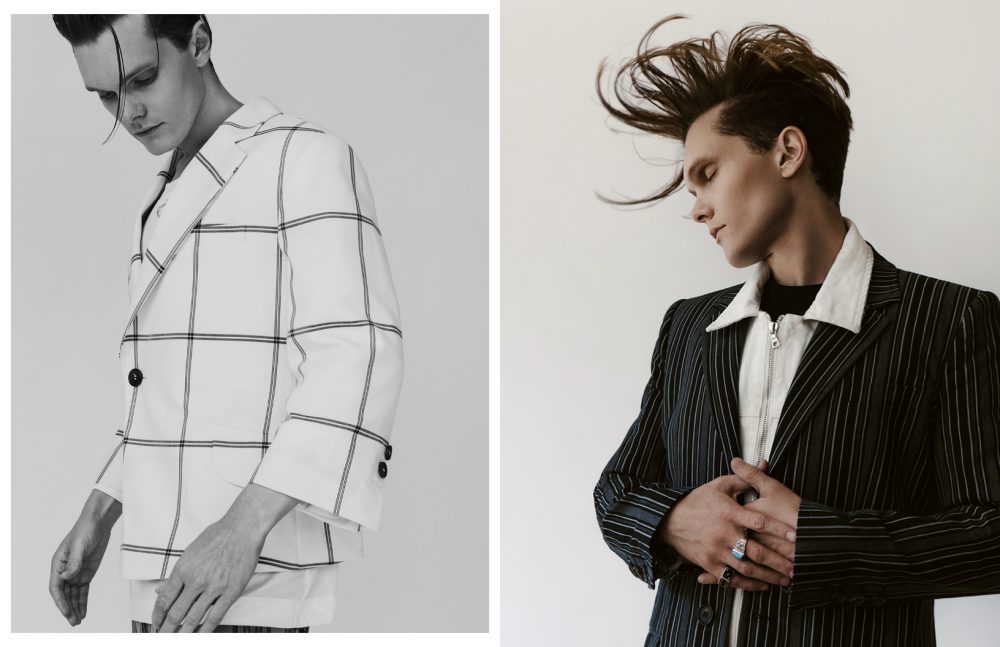
Blazer / Vivienne Westwood
Shirt & trousers / Bristol
Opposite
Shirt / John Elliot
Jacket / Represent
Coat / Vivienne Westwood
Jewelry / Model’s own
Do you like horror movies? Are you comfortable with the kind of roles that are needed for said movies?
I like movies that make you feel something. Whether that’s the excitement of fright, the gut-punch of drama, the giddiness of comedy. As long as I’m making films that entertain and move people, that’s all I really want to do. Horror films can be polarizing, but I would rather be in a film that people hate, than in a film people forget about.
How did you prepare for your role in The Girl in The Photographs? Is it difficult to switch between normal day-to-day Luke and a demented killer with a camera?
To be honest, I’m still trying to figure that out. Once I’ve done the research, getting into character usually comes fairly easily. It’s getting out of it that can be a head-fuck. There’s something to be said for the trauma you put your body through – my brain knows it’s not real, but I’m not sure my body does. I was talking to an actor friend about it recently, and she brought up the concept of ‘Smile Therapy’, which is a tool psychologists use for patients with depression. They’ve found that forcing your face into a smile can trick the brain into thinking that you’re happy, and I feel like the reverse could be said for pretending to be sad, or angry, or anxious. Whatever the science behind it, I certainly know from experience there’s a residual something that’s hard to shake off.
Working with Wes Craven must have been special. How did that come about?
I auditioned for the project and was lucky enough that the director, Nick Simon, saw something in me that he liked. There were a lot of other, more well-known actors up for the role, ones who were more conventionally ‘right’ for the part, but Nick appreciated that I went against type, and championed me. Fortunately, Wes agreed, and with his support, they were able to push the powers that be to hire me. As a newcomer, who looks a little different and has virtually no social media presence, it’s extremely hard to break in, especially now. Perhaps it’s just been my experience, but I feel like, since the financial crisis, producers are much more unwilling to take risks. They want remakes and sequels, and films based on books and comics – stories that have been tried and tested – and they want actors that people know to lead those films. And look, I get it. If I was going to drop a couple million dollars I’d want to know that it’s safe, but if you do that, then that’s all it’s ever going to be. Safe. And when did that ever get us anywhere?
Where do you see your acting career going? Would you say that horror is a comfort zone that you would like to branch out of or are you eager to explore it further?
To be honest, at this stage I have very little choice. I’m at the mercy of the industry – and my bank balance. It’s a myth that actors sit back and read scripts, looking for “the right project” – unless they’re Meryl Streep. That’s just something actors say when they don’t have their next project lined up cause it sounds better than “I’m unemployed and nobody is buying what I’m selling.” The reality of the situation is that for 98% of actors, we have to audition and fight for each and every role, even the ones we don’t want. If I were to book a film tomorrow playing Lab Tech #7 who is mute and has cystic acne, chances are I’m going to do it. Obviously, there are roles I wouldn’t do, and over the past couple of years I’ve turned down projects, but it’s more about being uncomfortable morally with a storyline or a character’s actions, or not believing that I can play the character convincingly, which is a nonstarter for me. As a person, I don’t know how to give anything less than everything, so if I’m going to take a role, I’m going to go all in and I’m going to make him as real and interesting as possible, and if I don’t believe I can do that, I won’t do it.
Under the Silver Lake is to be released in 2018. What was it like working with Director David Robert Mitchell, also well known for his work with horror movies?
David is wonderful and I’m so excited to see the completed film. He’s such an interesting creative because so far he hasn’t repeated genres. His first film, The Myth of the American Sleepover, was more comedic than anything else, and then he moved onto It Follows, which falls into the suspense, horror vibe. Under The Silver Lake to me is a step in another direction. There are elements of his previous work, and he definitely has his personal fingerprint on it, but it’s a brilliant, entirely different spin. As a director, he’s extremely detail oriented but gives his actors the freedom to explore the character and the space for themselves, which is rare and refreshing. You can tell when you’re working with him that his vision is incredibly clear and defined, and he knows how to articulate what he sees to get you where he needs you to be.
As with your masked role in The Girl in the Photographs, the plotline here is also full of mystery and suspense. What is it about this that appeals to you?
I love a film that keeps you guessing. As an audience member, that’s where my engagement in a film or show comes from. I want to know what happens next, which side note is why I’m unable to stop myself bingeing a serialized drama into the early hours of the morning. As an actor, I love the opportunity to take someone on a journey and, for me, that’s about building intrigue. I never want to give anything away right of the bat; I want to take my time to reveal a layer of the character, one piece at a time, just as real people do. People rarely show their whole selves because vulnerability is one of the hardest things for a human to do, and I think characters on screen should reflect that. Holding back until they can’t hold back anymore.
Do you take criticism well, and how do you use it to learn and grow as an actor?
Why? What have you heard? What don’t you like? What do you need me to change? I take criticism well-ish. The majority of the time I know it’s not personal, but it’s tough when you put so much of yourself into something for it to not feel like an attack. That said, I never want to stop learning and evolving as an actor – and as person-, and hearing from someone else can sometimes be a fast track to helping you achieve that. Being on set is different though. I understand that while I’m my own artist, in the scheme of the finished product I’m the director’s tool and I have to be completely open to however they want to use and manipulate me.
Taking all these hurdles into account, why did you choose to become an actor?
I think there’s definitely a strong desire that I can’t escape to tell stories about the human condition and leave my mark on the world before I leave it, but I’d be lying if I didn’t also say there’s something wonderfully cathartic about stepping outside of myself, leaving all my problems behind and becoming another human being for the day… as an experience, it’s just a little nicer when that character is having a good time and not killing someone.
Is there something about changing roles, stepping out of your own self and into a made up character that has impacted the way that you view life? Has it ever been overwhelming?
Absolutely. When you’re constantly dealing with human emotions you become skilled at identifying behaviours within yourself because you spend so much time identifying them in characters. I’ve learnt so much about myself from the characters I’ve played, more so than I ever really needed to. That’s probably why most actors are insane because we spend so much time thinking about ourselves. It’s a slippery slope to madness.
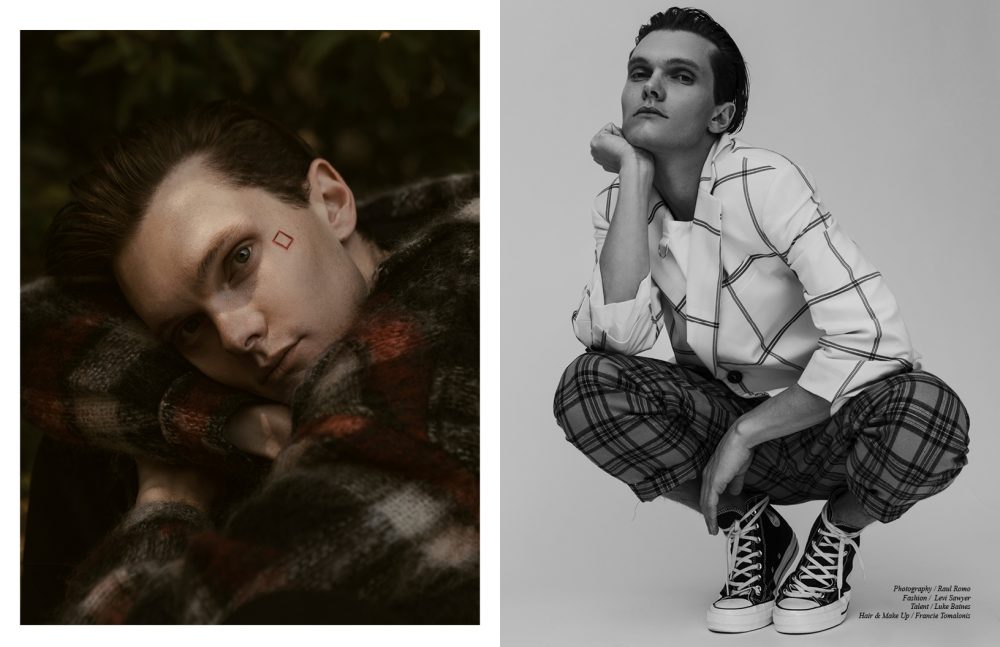
Shirt / Represent
Knitwear / Lanvin
Opposite
Blazer / Vivienne Westwood
Shirt & trousers / Bristol
Shoes / Converse
Do you have any hidden talents that you are yet to reveal to the public? A passion for dancing or singing perhaps, maybe even directing?
Since moving to LA and finding a lot more free time, I’ve tried my hand at writing, so I would love to bring a script I’ve written to life at some point. Whether I direct it myself, or just provide the words. Over the years I’ve had a couple of projects almost take off, but for whatever reason, they fell through. It’s certainly something I would like to do. Whether I’m any good at it is a different story. Aside from that, I have an uncontrollable urge to point out grammatical errors and spelling mistakes in text messages when it’s really unnecessary to do so, so perhaps I could work at the freak show on Venice Boulevard doing that.
Are there any gaps in the film market that you think need filling? Do you envisage yourself playing a role that would do just this?
Of late, there have been some incredible steps made towards breaking the mould regarding gender and race on screen, which is brilliant and necessary, but I would like to see this taken further to break down stereotypes of all kinds. People are not black and white cardboard cut-outs. They’re not good or evil, feminine or masculine, gay or straight, right or wrong. They can be all of the above, and it’s these qualities and nuances that make them human and yet are rarely shown on screen. It’s so easy to dilute a character into a stereotype, but if we keep doing that, then we’re just going to keep perpetuating dated ideals of what people should be, rather than whom they actually are. And isn’t the whole point of art to advance us as a society? Also, I would like to play an animated Disney character. That’s definitely a voice that needs to be heard.
TRUTH OR DARE premieres in the US today on the Syfy Network. Watch the trailer here.
This Schön! online exclusive was produced by
Photography / Raul Romo
Fashion / Levi Sawyer
Talent / Luke Baines
Hair & Make Up / Francie Tomalonis
Interview / Marianna Mukhametzyanova
Discover the latest issue of Schön!.
Now available in print, as an ebook, online and on any mobile device.


